Kristen Lamb's Blog, page 4
June 12, 2023
Set a Story ON FIRE from Beginning to End
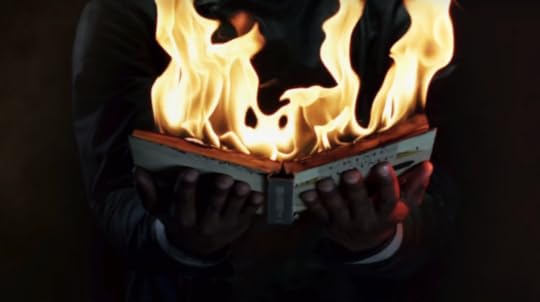
The beginning of any story is, by far, the hardest part. Well, except for that sticky middle pain in the @$$ ACT TWO that goes on FOREVER. Total nightmare not getting stalled there. Then, we need to make sure to knock it out of the park at the END lest readers curse our names for giving them such high hopes only to let them down.
Okay, let’s just say ALL parts of writing a novel are difficult and present unique challenges. Yet, a story beginning is the kindling that starts the fire that (hopefully) makes readers burn through a book like a wildfire through dry field.
For the record, this post IS a bit long BECAUSE I am including examples toward the end. Feel FREE to skim as needed. Just, in the comments, make sure to write how you LOVED every last word for bonus points in the contest.
Yes, I am shameless. Flattery will get you everywhere.
Moving on…
In the Beginning….
Other than a smashing cover, the opening lines of a book are among our strongest selling tools. We WANT potential readers to skim those sample pages or open the front of the book and be rendered helpless.
They simply MUST know what happens next!
Before we begin…
Beginning a new project, novel, story is a lot of fun, but it’s also where too many writers find themselves stuck. This is because, as I just mentioned, we are keenly aware just how important that opening is. It’s also because it can fall under what I call “productive procrastination.”
We keep going back over our opening until it’s perfect, but that is the lie. First, there is no such thing as a perfect beginning. We simply cannot please everyone.
Secondly, we can end up stuck in the quicksand of our opening because we really don’t know what our story is about, so we don’t know what logically should happen next.
Thirdly, maybe we do have a solid idea of what our story is about, but we are afraid of success. If we never finish, we can never fail.
I’ve been writing professionally for over twenty years and have edited literally thousands of works by other authors. Authors of all levels from pre-published newbies to internationally best-selling household names (yes, they need help sometimes, too).
I will grant you, there is a lot of pressure to nail the beginning, but here is a tip from an old pro that might help you loosen up that death grip.
Accept that 99% of the time, your beginning will change.
We can spend valuable writing time camping out on the one section of the book that is most likely to be cut, moved or rewritten altogether. OR we can do more productive activities, like actually finishing.
Now, if you are already churning out polished novels with no problem and your process works like a well-oiled machine? Feel free to ignore me.
If, however, you keep getting in a jam? Try something different and maybe take my advice.
Once you get started, keep moving. Relax and just continue writing until THE END.
What is the worst that can happen? You will have another method that doesn’t work. Big deal. But what if my advice DOES work?
Yes, I know you’re probably going to at least think your beginning sucks. That’s fine. Just envision it as a place-saver. Resist the urge to go make major changes. If you understand story structure, have a good sense of what your story is ABOUT, then press forward. It is a lot harder to revise what doesn’t EXIST.
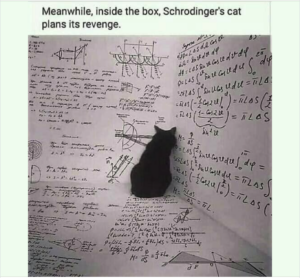
Perfect is the enemy of the good, and it is also the enemy of the FINISHED.
As I’ve said countless times on this blog, no half-finished “perfect” book has ever been a runaway global phenomenon, but plenty of “‘terrible’ but finished books have.”
When we keep moving our prose around, expounding, compressing, adding, removing, we can very literally edit all the life out of a perfectly good story. We also can develop a bad habit for the rest of the book, where we’re condemning ourselves to Revision Hell before we’ve even finished.
With all that out of the way, what are some key elements to excellent openings?
Begin in the Action
If you’ve been writing any amount of time, you might have heard the term in medias res. This can be a bit confusing, because many instructors/editors will also toss around phrases like, “Start in the action.”
This confused me for YEARS when I was a n00b.
Okay, so I added in terrorist and a bomb and a car chase, which is kinda weird since I’m writing a Women’s Fiction…
When we say to “begin in the action,” we mean dramatic action. When it comes to a modern audience, I would venture to say we have ONE minute to capture attention. We have about three sentences, a paragraph MAX.
Yes, we (readers) have the attention span of an ADHD goldfish with a closed head injury. But there is a lot more than we are some spoiled generation who can choose from a billion titles.
Not much more, but at least a little.
In Medias Res & Dramatic Action Melodrama is also what I call “soap opera” action.
Melodrama is also what I call “soap opera” action. First, there is a difference between “bad things happening” and “dramatic action.” When I teach I give this example.
Let’s say I drive down I-20 (interstate that runs east and west in Texas and across the U.S.). Traffic slows. A car accident. Like everyone else, I look to see what happened. Oh no, a fatality. There are emergency vehicles everywhere and a minivan on its side and there is an American flag sticker and a family of stick people on the back window.
And there are tarps. One adult-sized form, two little forms and a tiny form are all laid out under blue tarps. Judging by the sticker, Dad and the dog are about to have the worst day of their lives.
Am I saddened? Unless I am a total psychopath, sure.
Now…I am at the grocery story and there is a frazzled woman in front of me. She has two young kids and a toddler, and she is rushing because her husband is coming home from deployment and she’s throwing a surprise party.
I chit-chat while making goofy faces at the littlest. Maybe I creatively distract the other two from the candy so she can check out. I tell her to take her time and breathe. Since I only have a couple things, it takes only a minute and I see her in the parking lot juggling the kids and the basket which I offer to return for her.
On the way to return HER basket, I remember that, in all the chit-chat, I forgot one of my bags. So, I run inside and wave good-bye as her mini-van pulls out of the parking lot.
Fifteen minutes or so passes and I am now on I-20.
Same backup…but is it the SAME ACCIDENT?I ONLY spent a handful of minutes with this woman and her three kids, but I KNOW that mini-van, and recognize the American flag bumper sticker and the little family of stick figures.
I am not only affected, I am possibly inconsolable.
THIS is the magic that “Normal World” can create for your story. We “hook” with a problem. In my made-up scenario, the woman is in a hurry. Her PROBLEM (action) is she WANTS to be setting up the party BUT she has too much to do and is running late. And, if I (the author) am introducing her, then readers are trained to sense something BAD is likely to happen.
***Psst, this is called “dramatic tension.”
I might not even give the names of this mom and her little ones, but they matter far more (emotionally) than had I started too soon in the action (on the highway). Yes, I needed to get close (the store) but not too close. I began in dramatic action.
When we take too long, we risk boring readers and fail to hook them enough for a sale, let alone a read (or review). If we go too quickly, then there is no chance for the reader to CARE. We’re imbibing in dramatic action’s inbred third cousin, melodrama.
Be careful with melodrama. Invite it in and, before you know it, it drinks all the good whiskey and falls into a coma…only for its identical twin to move in, fake a pregnancy, and plan on stealing your romantic partner.
Be Creative with Your Beginnings
For the record, I HAVE been new. I’m still learning all the time and it’s easy for me to fall into old habits. It is natural for us to start a story in a place where we begin every day.
Waking up.
Someone being awoken from sleep in the beginning of a novel is not per se forbidden. It’s just low-hanging fruit. Figure out WHAT your story is ABOUT then get as close to the problem as possible.
I strongly recommend all authors have a log-line. HERE is how to create one. In a log-line, you will be able to tell anyone WHAT YOUR BOOK IS ABOUT IN ONE SENTENCE. Have that and WAY easier to write the synopsis. It is also much easier to figure out where in medias res actually is.
We can talk about log-lines more another time.
WHAT Should a Beginning Accomplish?
Other than hooking the reader and hopefully landing a sale? Well, now we have to keep ON HOOKING! And people laugh when I say writers (storytellers) are the TRUE oldest profession *rolling eyes*
An excellent story is WOVEN. Have you ever seen a crocheted blanket where someone has missed a stitch? MORE than one stitch? Stitches ALL OVER? If not, feel free to visit me in Texas. I have loads.
It’s OBVIOUS whenever you drop a stitch.
Same in any textile. Look at fabric for a shirt and we can INSTANTLY spot where a stitch went wonky. Or for a sofa or a decorative pillow.
Same in stories.We need to hook each and every line to the next and next and next until the reader runs out of pages and suddenly realizes, with a sinking heart…they are finished and out of BOOK.
Oh nooooooo!

BUT, to do this we need to know what are some ideals in the beginning.
Hook the Reader’s InterestPresent WHO the MC is (or in certain genres like mystery or thriller, who the OPPOSITION is). Some genres begin with a prologue (check out The Seven Deadly Sins of Prologues), and often the opposition is mentioned in a prologue. By CHAPTER ONE, however, we need to be introduced to the MC.Introduce the Big Boss Troublemaker (also known as the CORE antagonist responsible for creating the story problem that will be resolved by Act III).Establish what POV the author is writing in (first person, first-close, third person, third-shifting, omniscient, etc.)Give us a sense of time and place.Set the stakes.Offer a sense of the author’s STYLE.Render all readers helpless to put our book down…By now you might be thinking, “That’s all?” while others of you are thinking “THAT is ALL? Why not go for world peace while I am at it, Kristen?”
Yes, that is all (for now) and world peace would make a terribly boring novel.
The Beginning “To Do” EXAMPLE Iconic image from “The Exorcist”
Iconic image from “The Exorcist”Since I give a lot of the same examples, we’ll do one that is a little different. One of my ALL-TIME most beloved books is William Peter Blatty’s The Exorcist. Why? It beautifully demonstrates all the elements of a superlative beginning.
I also wanted to use it because horror can get a bad rap, especially when Hollywood gets involved. Because learning that a movie that is infamous for shock value actually is a book that begins with many layers of nuance? Mind…BLOWN.
In fact, nothing particularly “shocking” happens until a third of the way into the novel and yet Blatty is RIVETING.
Prologue Opening:
Northern Iraq
The blaze of sun wrung pops of sweat from the old man’s brow, yet he cupped his hands around the glass of hot sweet tee as if to warm them. He could not shake the premonition. It clung to his back, like chill, wet leaves.
If this beginning doesn’t hook at least those who love a good scary story, unsure what will. At this point, there is no gore, no pea soup, no spinning heads…only a sense of impending dread.
WHY? WHAT IS CAUSING THIS FEELING?
The reader will (likely) keep reading because we are inherently nosey and we DO WANT TO KNOW.
Priest and archaeologist, Father Lankaster Merrin (who is AN MC, but not THE MC) will reenter the book later. The reason Merrin is in the prologue (again, check out that blog of how and when to use a prologue) is because Blatty wants us to know Merrin has fought this enemy before (INTRODUCES an MC, the BBT, also gives us a clue about the core story problem).
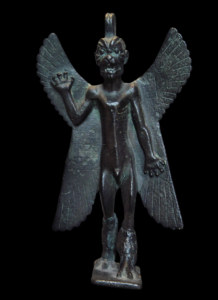 Image via Wikimedia
Image via WikimediaMerrin’s dread is that he senses his old foe (the demon, Pazuzu, has regathered his strength and wants another go at him). Pazuzu is first hinted at via premonition, then when Merrin picks up an ancient amulet of Pazuzu’s head, and finally (notice it is in threes) when he goes out the the dig site and sees the statue of Pazuzu (Demon of the Southwest wind, Ruler of Sickness and Disease).
When Blatty closes out the prologue, a chill wind suddenly kicks up and Merrin notes the wind is from the southwest.
His final sentence in the prologue is:“He hastened toward Mosul and his train, his heart encased in the icy conviction that soon he would be hunted by an ancient enemy whose face he had never seen, but he knew his name.”
Just WOW! I’m not speaking to those who’d rather play in traffic than read horror (I can’t please everyone). But for everyone else, maybe even people on the fence about the IDEA of reading The Exorcist, you have to admit that is a KNOCK OUT hook!
More Blatty Beginning Beauties Pazuzu via Wikimedia.
Pazuzu via Wikimedia.Within two pages, it is clear that Blatty is writing in omniscient POV (GOD has the camera), which is a nightmare of a POV to write without devolving into confusing head-hopping. BUT, Blatty nails it.
Sense of time and place:
The fragrance of licorice plant and tamarisk tugged his gaze to poppied hills, to reeded plains, to the ragged, rock-strewn balsa road that flung itself headlong into dread.
I think he not only paints a stunning picture of a roadside in Northern Iraq, but notice, he STILL puts in that hook.
…to the ragged, rock-strewn balsa road that flung itself headlong into dread.
Using some anthropomorphism with the road, we get even MORE clues signaling DANGER! DANGER! DANGER!
We sense the stakes are not only life and death, but might just extend beyond THS life.
A big thing here, however, is to notice how we get a REALLY clear sense of Blatty’s STYLE right in his beginning. I am a crow when it comes to words and gorgeous prose. Cannot get enough of it. Yet, just because this is what I like, doesn’t mean everyone likes it.
The Old Man & the Sea Beginning
If I could think of any author who might be the furthest from Blatty, immediately Hemingway comes to mind.
Opening Sentence:
He was an old man who fished alone in a skiff in the Gulf Stream and he had gone eighty-four days now without taking a fish. In the first forty days, a boy had been with him. But after forty days without a fish the boy’s parents had told him that the old man was now definitely and finally salao, which is the worst form of unlucky, and the boy had gone at their orders in another boat which caught three good fish the first week.
What do we learn in this beginning?
Immediately, there is a PROBLEM. Eighty-four days without catching a fish when one makes a living fishing is, in a word, a PROBLEM. We also see the POV is third-person and can take note that Hemingway is not big on a lot of description.
For readers who aren’t keen on a lot of decoration, Hemingway might be a better fit.
We “get” that the BBT causing the CORE story problem is salao (the worst form of bad luck). Bad luck is represented via a PROXY in the form of…NO FISH.
If the old man catches a fish, he’s no longer salao and would possibly be welcomed back into the small community that has cast him out.
But note just HOW MUCH information we get without all the glittery prose.
The reader is TOLD that the old man wasn’t always alone. He HAD a young boy to help. How long?
Forty days.
For those who might not know, forty is a biblical number that can either represent testing (Jesus fasting in the wilderness before beginning His public ministry) OR it can represent judgement. According to the book of Genesis, when God first judged the Earth, it rained for forty days.
Thus, when it comes to The Old Man and the Sea, within just a little bit of text, we get a LOT. Is the old man in a time of testing OR is he (like his neighbors believe) facing supernatural judgement?
We wonder because when the boy left the old man’s boat, he immediately caught THREE (another biblical number/symbol of the triune nature of God) fish (another symbol of Christianity).
And maybe Hemingway inserted those Biblical symbols and references into the text. OR maybe he left the prose just spare enough so that the book would read differently for every reader.
Maybe another reader with another background would get something totally different, because Hemingway doesn’t strictly spell out what he meant (the way Blatty often did).
For instance, the Chinese have major issues with the number four. It’s often considered unlucky, possibly because it sounds so much like the Cantonese word for death. Between forty, and eighty-four, and ways to divide eighty-four? A LOT OF FOURS. Meaning an Asian reader (not some blonde from the Buckle of the Bible Belt) might get the same sense of dread, but for a wholly different reason.
Begin a Study in Beginnings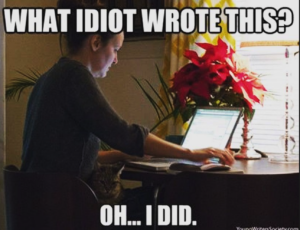
T.S. Eliot once said, “Good writers borrow, but great writers steal.” Now this is NOT and invitation to plagiarize, but there IS good news. The wheel works. It has already been invented, so guess what? No need to reinvent the wheel!
There are countless fabulous beginnings, so no need to totally reimagine beginnings as we know them.
Read your favorite beginnings. What hooked you? How? Why? What kept you turning pages? STUDY IT. Then take your favorite elements and create your own. Practice! Remember that attention spans are getting shorter by the day and it is harder than ever to stand apart.
Could I take your opening three sentences and COMPEL a sale?
Would readers be helpless wanting to know more? Cool thing about only three sentences (like the one-sentence log-line) is you can test them on people. Most people are much cooler with hearing an opening 3-5 sentences than committing 12-15 hours to a whole novel.
And you might make a sale!
Did my beginning hook them? Why? Why not?For the record, I am here to offer guidance, not a straight-jacket. This is a list of the IDEAL elements we’d introduce so y’all have a better understanding of what exactly you need to accomplish in a beginning.
The best writers/stories all check off almost all of that list within at least five pages of the beginning.
We can also do the obverse of this. What beginnings totally STALLED? WHY? Can you fix the opening? What went wrong? Why did you lose interest?
Thoughts on Beginnings?
What are some of your favorite beginnings? Why? Have you noticed a pattern among your favorite beginnings? Maybe a pattern among books you left unread?
I LOVE COMMENTS!
To prove it and show my love, for the month of JUNE, everyone who leaves a comment, I will put your name in a hat.
I actually have landed agents for people who���ve won this contest. Agents like me because I make their lives easier.
If you comment and link back to my blog on your blog, you get your name in the hat twice. What do you win?
The unvarnished truth from yours truly (and maybe even time with an agent).
I will pick a winner once a month and it will be a critique of the first 20 pages of your novel, or your query letter, or your synopsis (5 pages or less). People with superlative writing, I (with your permission) have been known to pass you onto an agent.
Anyway, I look forward to reading your comments and your writing!
MAY WINNERS:Pamela Reece, Lisa Brooks, and Anthony Butler. Since I had a delay (taking care of Mom after her shoulder surgery), I am feeling super generous since y’all were SO GENEROUS with ME!
Please send the first 20 pages (5000 words) to kristen at authorkristenlamb dot com. Put in a Word document, Times New Roman, 12 point font, one-inch margins. Feel free to go a little over if you need to finish a thought, paragraph, chapter. I can always STOP reading. Just don’t get crazy.
The post Set a Story ON FIRE from Beginning to End appeared first on Kristen Lamb.
May 31, 2023
Give Up! Why Your Genre is Probably Stupid

“Real” writers (and critics) know a lot of things, but one thing they know is genre. And whatever genre you’re writing—for the record—it is probably stupid.
Last post, I made a joke about what makes us “real writers,” which is a notion that has cracked me up for at least fifteen years. Writing, for some weird reason, is one of the few professions that seems to always carry around this crushing existential crisis of whether or not we are REAL.
Like Schrodinger’s writers. If you put a writer in a box, are they simultaneously a freaking GENIUS and a talentless-hack-poseur?
I might think this “real writer” stuff is funny…but at the same time I also struggle with it.
Real writers always seem to be whatever I am not. They also DO whatever I don’t do and write whatever I don’t.
Today, we’ll pick on genre.
Your Genre is Stupid
Do you happen to write those silly little romance novels? Maybe those goofy cozy mysteries? Heck, I can read one of those in about three hours. Probably only took that long to write. Dragons, smut, and aliens. What DUMB genres.
Though NOT NEARLY as dumb as those LOOONG books.
Like Ken Follett and that Pillars of the Earth. Just how padded was that thing? Did he really feel the need to use every word in the English language, and then some? Apparently he did since there’s a WHOLE series.
Space books? Dumb. Sexy books. Dumb. Westerns? Obviously dumb. Self-help? Why would I waste time on just how dumb those are.
All right, now that I have probably either confused or ticked off everyone reading this, I DO have a point.
How many of us, deep down, BELIEVE THIS? This crushing doubt is what keeps us from starting, finishing, publishing, marketing, or even admitting we are a writer aloud and to other people. Deep down, we believe whatever genre we write is dumb, despite any or all evidence to the contrary.
Whatever genre we write is either useless fluff, boring pontification, derivative, whatever, *insult nonsense here*.
Genre Envy Kidding! Mostly…
Kidding! Mostly…Genre envy happens to me pretty much every time I read a good book, watch a great series, or go to a writing conference.
Say I am at a conference. I meet the romance authors who can write a book-a-month. They’re getting movie deals, and their books are translated into 27 languages and I think, “Now THAT is a real writer. I should write faster.”
Of course, then I meet the next author who writes deep, thoughtful, provocative novels so long that a print copy is heavy enough to take out a burglar. And I think, “Now THAT is a real writer.”
So, I go to the next session where there is a spitfire teaching me how to balance life, love, kids, cooking, working out, pets, and who tells me that mastering EXCEL is the secret to joy. And I think…Dear God please kill me. EXCEL? And THEN I think, “THAT is a real writer.”
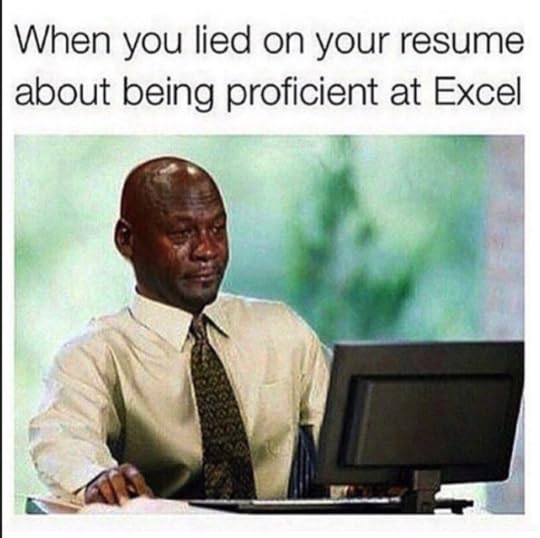
I watch Netflix and there’s something light and fun. I should write more like THAT. Then I watch The Last Kingdom. No, I should write more like THAT. Those are REAL stories.
Want to know the funny part? I am actually right on ALL counts.
Maybe I’m the only one who does this so I am happy blogging to myself. But, I admit I struggle with genre envy. Too often, it seems the only REAL stories are whatever ones are not like mine.
Even down to writing all these blogs. I get so much enjoyment out of helping y’all laugh at a very intimidating world, and then making that world just a little less scary.
Word is, I’m even pretty good at teaching, encouraging and inspiring, but I’ve honestly held back on writing more TEACHING BOOKS because—SIGHS—then I wouldn’t be a REAL writer because we all know….
Those who can do, and those who can’t TEACH.Which was a line from a George Bernard Shaw play that is still used to disparage educators despite being utterly flawed. Some of our greatest doers were also our greatest teachers. Ever heard of EINSTEIN? Apparently, my subconscious thinks he’s a “fluke” (along with Oppenheimer, Feynman, J.K. Rowling, and J.R.R. Tolkien).
***For the record, I’ve recently realized how dumb that is and just…yep.
Consider the SourceMaybe y’all are not like me and you are super confident that what you write is exactly what the world wants and needs (please send tips). I know when I was new, when I decided to quit working in Corporate America, I believed my writing WAS EXACTLY what the world had been waiting on.
This was before I found out the world around me had an opinion.
Everyone is a CRITIC.If you haven’t seen this, take the three minutes for the good cry laugh.
As I mentioned, when I said I was going to become a writer, my grandparents thought I was joining a cult insane. Despite literally WALLS of books through their ENTIRE HOUSE, they believed I was doomed to poverty and foraging in dumpsters for food.
***Joke was on them, Taco Bell had a .99 menu…and I only foraged in dumpsters for furniture and the occasional outfit. I LOVED it when the guy next door fought with whatever girlfriend, because he always threw away any clothes left in his place on actual garbage day…and yes I am a bad person but I needed new tops more than the landfills did.
Anyway, my grandparents thought fiction was stupid. This came from a grandfather who literally bought and read every single Louis L’Amor book. If it was in space, SIGN HIM UP! My grandmother never met a Tony Hillerman or a Dick Francis she didn’t PREORDER.
Since I was reared by my grandparents who almost always had a book in hand, imagine my shock when they told me it wasn’t a REAL job, and that no matter what genre I wrote, it was stupid going to land me in the poor house.
One friend told me to write romance, another told me that mind candy was useless and I needed to put my intellect to good use with some solid NONFICTION.
I felt like that little bird in “Are You My Mother?” I’d hatched without one mommy genre I truly LOVED—because I’d read all of them—and so I flitted around asking “Are You My Genre?”
Still struggle with that.
Which Genre is WORTH Writing? Come on, laugh. I watch them, too.
Come on, laugh. I watch them, too.Let’s go back to all you guys I insulted earlier. I’m sure I didn’t say anything you haven’t heard. Romance authors? Y’all just AMAZE me. I cannot write romance. And we all hear the Hallmark jokes and laugh (while those writers who can write Hallmark stories are laughing all the way to the BANK).
And it isn’t just money for me. I genuinely wish I had the skill to weave a world where love wins and do that over and over and over.
That is not a gift, it is a SUPER POWER. The world NEEDS you. Maybe you will never win a Pulitzer, but who cares? Y’all make the world a brighter, prettier, sexier, livelier place. We need books that remind us about love, or being young, the thrill of a new relationship, or even the deep resonance of love that endures.
For the writers out there churning out space alien books or westerns, or alien westerns? Same thing. Not ALL writing needs to be heavy because LIFE is heavy and sometimes, we just need a break. We need to remember good guys win, love triumphs in the end, that broken people can heal.
We are SO overloaded, books help us remember what it’s like to be kids again. To believe in magic and dragons and spaceships or magical dragons with spaceships.
For the literary folk, y’all provide ways for us to question our world, look at life in a new way, from another point of view. What y’all do is critical as well.
What Genre Should YOU Write?
THAT is a question only you can answer. Did I mention an incredible book called Dear Writer, You Need to Quit?
I’ve been blogging HERE for almost 15 years, and I work really hard to give you guys a lot of options because writing is not One-Size-Fits-All. People are all different and we have different strengths and weaknesses. Additionally, we CHANGE. It is called GROWTH.
Why do I mention this? Because we are now Digital Age Authors which is hell awesome. It changes ALL the time. If you’re really good at one type of writing and you are happy and achieving YOUR goals? Keep at it. Maybe Amish Erotica hasn’t taken off, but the world might not yet be ready for Fifty Shades of Hay.
Conversely, the WONDERFUL (and maddening) part of our profession is we have to learn to reinvent and pivot. If you’ve been writing one genre and now you’d rather mainline cookie dough than write any more YA Urban Fantasy? Do something different! Maybe it will fail, but maybe it’ll work.
Or MAYBE it will just be the nudge you need to remember why you loved your genre of choice.
Which Books SELL the BEST?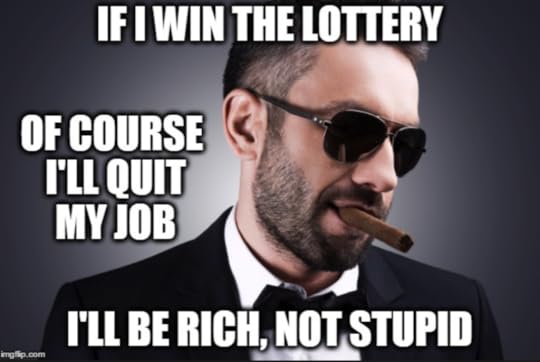 Or a writer, apparently. Because we would all WRITE MORE!
Or a writer, apparently. Because we would all WRITE MORE!We’ve spent all this time talking about genre and I hope you are feeling a bit better. Yes, the same world that spends every extra minute enjoying what creative people create is the same world that’ll tell you this isn’t a real job and that whatever you are doing is stupid.
The trick is not believing it. Because I am going to let y’all in on a secret. After all this, the books that sell the best are *dramatic drum roll*…
FINISHED ONES.
Honestly, it doesn’t matter. Western writer Louis L’Amor “wrote 100 novels, over 250 short stories, and (as of 2010) sold more than 320 million copies of his work.” Does this, however, make him any more or less of a REAL WRITER than Emily Bronte, J.D. Salinger, Oscar Wilde, and others who only had ONE BIG BOOK?
There are plenty of writers who’s works became classics, sold a bazillion copies, were made into award-winning movies, but they were essentially what the world calls one-hit-wonders, which I have feelings on that, too.
***Check out Self-Sabotage: I Don’t Deserve Success.
Regardless of what you write, it doesn’t matter so long as you finish. There have been a ton of “crappy” internationally best-selling FINISHED novels, but I have yet to encounter the runaway success of a half-finished PERFECT novel.
So give yourselves permission to love what you write, because if you fall in love with it, we can feel that. And odds are much better we’ll fall in love with it too.
What are Your Thoughts?So y’all know, I reward initiative. Are you someone who keeps changing genre? Do you have genre envy? I SO love George R.R. Martin complexity, but it would break my brain trying to write it. Is it hard to believe what you write matters? Come on! Spill! I can’t be the ONLY one.
To prove it and show my love, for the month of MAY, everyone who leaves a comment, I will put your name in a hat.
If you comment and link back to my blog on your blog, you get your name in the hat twice. What do you win?
The unvarnished truth from yours truly (and maybe even time with an agent).
I will pick a winner once a month and it will be a critique of the first 20 pages of your novel, or your query letter, or your synopsis (5 pages or less). People with superlative writing, I (with your permission) have been known to pass you onto an agent.
I actually have landed agents for people who���ve won this contest. Agents like me because I make their lives easier.
Anyway, I look forward to reading your comments and your writing!
The post Give Up! Why Your Genre is Probably Stupid appeared first on Kristen Lamb.
May 24, 2023
Aspiring Writers Need to Quit NOW

Aspiring writers. There are so many out there. MILLIONS! BILLIONS (if we count bots). I just returned home from the Idaho Writer’s Guild Conference, where there were rooms and rooms full of aspiring writers.
Since y’all weren’t there, now it is your turn. I want anyone who refers to themselves as an aspiring writer to raise their hands.
No worries.
You are probably alone and only the pets can see you. Or, people around you already know you’re weird and won’t bat an eye.
Raise that hand! Aspiring writers? Anyone?
If you raised your hand, now I want you to take that hand and SLAP YOURSELF AND NEVER EVER REFER TO YOURSELF AS AN ASPIRING WRITER EVER AGAIN!
I’m watching you O_O.
I have people…everywhere…..
*cue creepy music*
Thing is, first of all, I would BET MONEY most of you already have a computer hard-drive FULL of short stories, poems, novels (finished, unfinished, good, bad, not fit to be let out among the human race for fear it might unleash the apocalypse). Point is y’all have written ZILLIONS of WORDS.
Meaning, writers write. You already ARE a writer. There is no try only DO. Aspiring is for wimps. This job is tough and it sure as sh sprinkles isn’t for everyone.
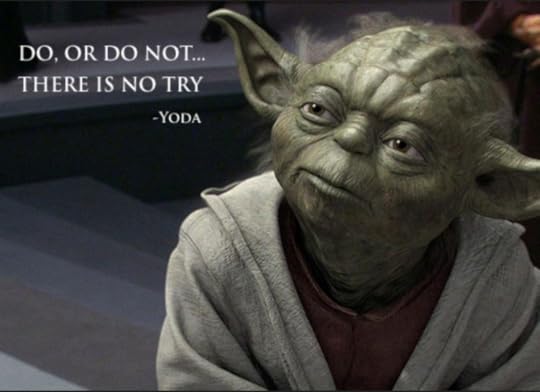
Today’s post is here to help y’all, recharge, reframe, regroup and hopefully have some laughs. Everything I mention, we will deep-dive…LATER.
Where was I? Ah yes…
QUIT being an aspiring writer. Feel free to refer to yourself as a pre-published author. If you have some moxie, go for pre-best-selling author. For those who have the ego of GOD like me? Pre-internationally-best-selling-global-dominating-mega-author.
That one can get long on a business card. So maybe an acronym PIBSGDMA?
Or not.
The point is that if we aspire to be a writer, that presumes we are not already a writer. How we approach this business is critical because the odds are NOT in our favor. We have better odds of winning the lottery as we are struck by lightning than we do of being a mega-author.
Yes, I know. You feel super inspired.
One of the reasons the odds are SO stacked against us is simple. We can be our own worst enemies. Time to get out of our own way!
What Kind of Writer Do You Want to Be?
First, the good news. This is a FABULOUS time to be a writer. In Ye Olde Publishing Days, there were essentially two ways to be published—traditional and vanity. Either you fought through gatekeepers or you paid to play.
You were constrained to what the market wanted. If you didn’t write that, or your first book was a stinker? NEXT! You were also limited in how many books you could produce. There was really no outlet for the I-write-a-book-a-month-cyborgs-writers.
***Yes, my jealousy showing a little.
Today? If you write poetry, novellas, shorts, flash fiction, haiku, recipes, haiku-recipes…it DOES NOT MATTER. Why? Because you literally can publish anything you want. If you want to publish a book a week, you can.
If you write super LOOOOONG and only want to publish your 230,000 word tomes once a year? You can do that, too (and in like 17 different ways).
Now, the bad news.
Writers can publish anything they want and how often they want.
Herein Lies the Problem
With SO many changes in the market, have you taken time to decide what KIND of writer you want to be?
When I started writing, TWO choices. Then, as the digital age happened, we could go indie, then hybrid. So, FOUR choices.
Now? I literally cannot write out all the new ways there are to get our work in front of readers (and be PAID). Between so many avenues in self-pub and indie, then domestic and foreign markets, it is dizzying (and for other days and other posts).
There are some really successful writers out there, and not all of them *clutches pearls* write full-time. Why? Because the market is so oversaturated it is STOOPID.
It passed being STUPID in 2013 and is now STOOPID.
The odds of being to able to write full-time for a living and still sleep and, like, see the sun are not great…but not impossible. And if writing full-time as your sole income is your goal? Go for it!
But if publishing a rich, robust, deeply introspective novel once a year is your jam? Do it. If you love writing literary candy corn and can put out 3 or 5 or more books a year, do it!
Something in between? Do it. Until you can’t do it, then revisit the plan.
My point is, y’all need to get specific. Other than aspiring, what kind of writer are you? How do you define success?
Heck! I had to get specific. If you read my last post I wrote it while curled in the fetal position listening to DIDO. I was BURNED out. So burned out I couldn’t see the forest for the rose bushes (I was a bit lost)…which is why conferences are invaluable and for another post.
No More Aspiring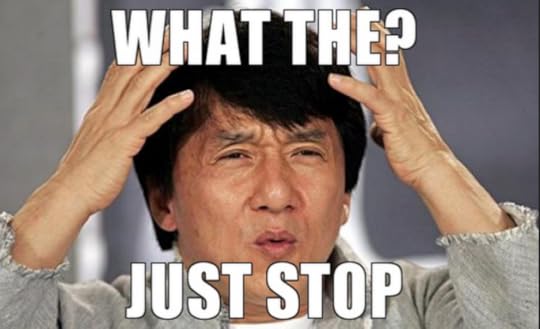
So, now you (hopefully) have read this far and you can stop calling yourself an aspiring writer. You already are a writer. OWN IT!
If you still aren’t convinced, I can tell you aspiring writers do exist. These are the people who say things like:
Yeah, I loved “Game of Thrones.” One day when I have enough time I’d like to write a fantasy novel.
Sure, because writing frigging GoT is just like whipping out an EMAIL! And time is the only thing separating them from being George R.R. Martin.
For the record, writing does not work like evolution.
*shock face*
We cannot type a couple sentences then wait thirty million years and magically have a series. Or maybe we can, but we won’t be around to see the fruit of our labors. But, I am still betting on NO.
In writing there is a DIVINE CREATOR—US–and intelligent design (if we do our jobs well).
*rant over….mostly*
What is a
I have no idea why we writers get all existential with their careers. Can you image how weird it would be if dentists wandered around wondering if they were a real dentist?
Where was I?
Writers.
Look it up. Writers write. It is literally the definition. But what is YOUR definition of a “real writer”?
If the definition of a real writer only included those who solely write novels for a living, then we just excluded Edgar Allen Poe, Charles Dickens, Ernest Hemingway, and Mark Twain (to name a couple). Many of the greatest writers in history (and even today) still have a day job for a number of reasons.
Maybe they love the stability that goes with having a job and benefits. Because they aren’t HYSTERICAL they won’t be able to—I dunno—pay the power bill, they’re able to write and publish because of things like…they can SEE better when the lights work.
Amazing, right?
Some of us also keep a day job because we like doing OTHER things that are not writing. We need to be able to get out of our own heads because it’s dark and spooky in there. Other writers DO have the ability to write full-time (maybe your partner works) and so go you!
Still real.
What Works? What Doesn’t?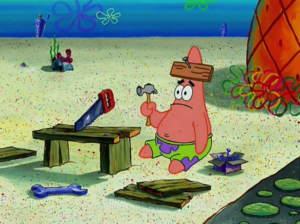
When we shift our mindset from aspiring, our goals shift from passive to active. So long as I was aspiring I floated along, believing there was only one way (my way) even though it wasn’t working.
Because I pivoted in my mindset and profession, this gave me permission to try new things, I could incorporate what worked, what didn’t and at least I gave it a shot.
Just like I’m asking you to quit calling yourselves aspiring writers, I also want you to quit believing there is only ONE way.
Unless you’re already happily writing a book a month, Netflix is making them ALL into movies, and you like to relax in a bathtub full of royalty money.
***If this is you, um. Please email adopt me.
On the other hand? If you aren’t finishing? You’re burning out? Your books are good but aren’t selling? Your way used to work but isn’t working now?
Try something different.
Possibly reframe how you are thinking and question it. Perhaps your definitions, goals, or expectations need to be dusted off and revised.
I also want to send you over to Becca Syme’s Better-Faster Academy. Do yourself a favor and buy HER book, Dear Writer, You Need to Quit. Then READ IT. Buy ALL of them, but at least start there.
This is Me Post-Becca…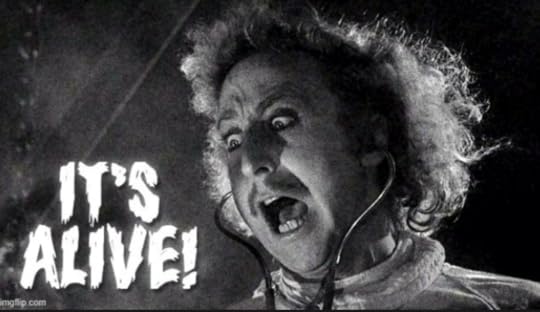
When I went to this conference, my head was so far up my tail, doctors could have performed a colonoscopy and an eye exam at the same time. I was overburdened, helpless and hopeless. On the flight home, I read snorted Becca’s book like a line of cocaine.
SOOOO many answers.
I have many more incredible resources to share with you guys, experts who are NOT ME. That is what’s fabulous about our industry. Books are not so cost-prohibitive we can only buy ONE. Also, not all experts have all answers so you have a TEAM of us out there to help you.
Meaning, expect to drink from a firehose more in coming posts. And, since y’all are all now pre-published writers, you will need the best team you can get.
I LOVE hearing from you. Are you calling yourself a pre-published writer now? Were you “today-years-old” when you realized there were more than, like THREE, paths to publish? Are you relieved that you are still a REAL writer even if you always have a day job?
Were you losing hope that there wasn’t a home for your writing? Did you think you had failed because you’d never revised your definition of what a REAL writer was?
I love hearing from you in the comments! It helps fuel me to keep on going. After seventeen years, I’m apparently powered by caffeine and compliments.
I REWARD Initiative!To prove it and show my love, for the month of MAY, everyone who leaves a comment, I will put your name in a hat.
If you comment and link back to my blog on your blog, you get your name in the hat twice. What do you win?
The unvarnished truth from yours truly (and maybe even time with an agent).
I will pick a winner once a month and it will be a critique of the first 20 pages of your novel, or your query letter, or your synopsis (5 pages or less). People with superlative writing, I (with your permission) have been known to pass you onto an agent.
I actually have landed agents for people who’ve won this contest. Agents like me because I make their lives easier.
Anyway, I look forward to reading your comments and your writing!
The post Aspiring Writers Need to Quit NOW appeared first on Kristen Lamb.
May 16, 2023
Rejection: What is REALLY in Control?

Rejection can be so devastating, that the emotional impact registers the same as physical pain. Think about that for a moment. Our brain cannot tell the difference between losing a job and getting hit with a bat.
In fact, for those of you out there who’ve ever been fired spectacularly (too)? You might even prefer being hit with a bat.
Can I get an AMEN?
The sense of “belonging” to a group is hardwired into our DNA, and for very good reasons. For most of human history, life was nasty, brutish and short. We needed to remain in groups to ensure survival.
Rejection was very literally a death sentence. This is why cultures all over the world all have some form of exile/banishment reserved among the gravest of penalties.
Not So Fun Fact
Earlier, I mentioned “being fired.” The etymology of this word is LITERAL. As in no one in the tribe liked you.
So they burned down your hut.
Subtlety had yet to be invented.
Pain is meant to teach lessons that keep us alive, in tact, and reproducing. We touch a hot stove? We instantly learn that’s a bad idea. Yet, here’s the rub. Social pain is ALSO meant to teach lessons. Historically, when we acted in certain ways, we could expect rejection (or, conversely, acceptance) from the group. Pain served as a guide and taught us how to be properly social.
The problem, however, is that—while that hand we burned at age two fades from memory—the first time we were dumped, fired, bullied, laughed at in public is likely to never go away.
I know. I missed my calling writing for Hallmark.
Why are we talking about rejection, anyway? For a number of reasons, but first and foremost, we are writers.
Need I say more?
Knowing this, how do we get up? More importantly, how do we keep getting up time after time?
Expect Rejection
To make it in our profession, we must develop rhino skin. Writing is largely subjective. Trust me. Once you put yourself out there, everyone has an opinion. Many feel the urge to express that opinion, regardless of whether it is helpful or not.
Despite the fact that the general population spends almost all their extra time and money on what WRITERS create (Internet, movies, Netflix, books), most will insist we do not have a REAL job.
Ouch.
It’s dumb. I know. Roll with it, and, if it helps? Remember people eat Tide Pods, too. What can I say?
If you want to publish the traditional route, then expect agents and editors to reject you. Hopefully, they’ll be nice about it, but there are no guarantees.
Say you get a book contract. Yay you!
Ah, but that book will hit the market eventually, and then it will be time to face the critics…and the readers.
While I love getting a good book review, they can’t all be good.
This said?
People can be amazing…but they can be so horrid they’ll leave a writer curled in the fetal position washing down cookie dough with tequila.
Blogging is Good Practice
Does every writer need to have a blog? No. Is it a good idea? Sure. Blogs play to a writer’s strengths. Writers WRITE. Or, at least we are supposed to. Blogs are a great place to learn, to refine our voice, to improve our skills, and to…*sigh* learn how to deal with rejection.
When I started this blog almost fifteen years ago, my biggest fans were cheaphandbagsandxanax, sexyrussianbrides, and hotcollegegirlsforyou.
They left the best comments.
“I so lick your blog.”
“You make many good poinsettias.”
“You’re post is much brilliant!”
*sighs wistfully*
I knew they were bots, but I didn’t have the heart to delete the comments because looking at NOTHING was so much more depressing. Week after week, year after year, I blogged to the ether. But, I kept at it and, with time, eventually people began caring what I had to say.
Blogging taught me self-discipline. I learned to write to a deadline and SHIP. It trained out all my most of my okay some of my perfectionism. Blogs don’t have to be Pulitzer-ready. Perfect is overrated. In fact, perfect is the enemy of the finished. Let’s just say that blogging helped me grow up as a person and a professional.
Sadly, though.
Not All Days Can Be Halcyon Days Works with trolls, too.
Works with trolls, too.It’s great fabulous to go viral. First time I went viral, I didn’t even talk about writing. I figured no one was reading my posts anyway, so I griped about STAR WARS in What Went Wrong with the Star Wars Prequels? Wow.
FYI, people are VERY passionate about a made-up universe. That post is over a decade old and still getting comments.
It’s all fun and games…
…until you write something meaty and divisive and get misquoted and it feels like everyone on the Internet wants to run your head through a garbage disposal.
I give you…“Pay the Writer.”
From the reaction, I might as well have written a post called “Punch a Kitten.” Weirdly enough, the notion of actually paying writers with MONEY was a very polarizing post. Who knew? While many authors and readers rallied to my side (y’all were AWESOME), others swarmed to my site to call me the “c” word.
“Cute” NOT the word.
It took all my willpower not to take down the post. I just wanted it all to STOP! But, I didn’t. If writers being paid was the hill I’d die on, there were dumber hills.
If I didn’t stand by my work, who would?
Book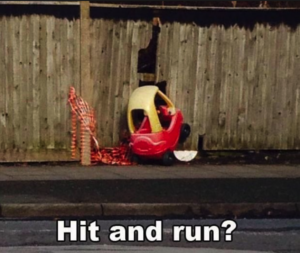
The same thing happens with all books. When I choose something to read, I rarely let reviews influence my choice. The reason? In my opinion, reviewers are often unreliable narrators.
I don’t know if this will help, but, statistically speaking, only two kinds of people are likely to leave a review. Those who LOVED our book…and those who want to set it (and maybe even us) on fire inside our hut with our keyboards.
***Learned that little nugget in political statistics.
Those who enjoyed the book—then simply moved on to the next read—are statistically unlikely to leave a review because they were neither super amazed or dismally disappointed.
People can be wonderful, but they can also be horrid. The same jerks who probably paid us burgeoning writers to do their THREE-PAGE paper for them because writing WAS SO HARD are the same people who’ll write a FIVE-PAGE evisceration review.
I don’t make the rules.
To be clear, I am not talking about negative reviews that are thoughtful and concise about what in particular the reader didn’t like. I’m talking about the turd-slinging that serves no purpose other than playing high-and-mighty while being needlessly cruel.
Jerks Happen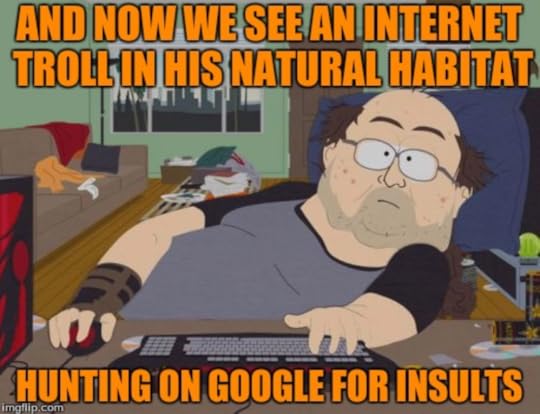
Sometimes I wish I had a “SMITE” button so I could zap these trolls (obviously with slightly-less-than-lethal electricity) so as to remind them that there is a living, breathing person on the other side of their ugly character assassination review. A writer whose ONLY goal was to inform or entertain.
We get it. The author missed the mark. No need to be a troglodyte.
SMITE!
Sadly, though. I do not have that button or I’d protect us all. But, I can’t. And, like my old blog post, you will have to be willing to stand, even if it feels as if you are alone.
Rejection sucks.
But here is a cool trick to help you keep perspective. I do this when I feel low. Go look up your all-time favorite books. The books you are certain are perfection on every page. Then look at the one and two star reviews and you will see the truth.
You cannot please everyone.
If you get a bad review, my advice is to listen and be teachable. Maybe they are onto something you didn’t see and can do better next time. If they’re just being a jerk, then you only need eleven more haters to technically be famous, so?
You’re welcome!
Rejection Defines and Refines Us
I am fairly certain many of y’all have been nodding along and that is great! But, you might want to keep this one bookmarked for a bad day. If you stay at this long enough, you’re going to have days that you wonder why you didn’t learn to be a dental assistant or why you left that exciting life in medical billing.
What were you THINKING?
When I decided to become a writer, my family didn’t talk to me for a year. I said, “I’ve thought this through and corporate sales is not for me. I want to be a writer.”
My family heard, “Blah blah, throwing away expensive college degree going to wear beret and write bad haiku, blah blah, writer, joining a cult, blah blah.”
DO NOT expect to get a lot of support outside of other writers. If you get it? Fabulous! But it’s good to hedge expectations. Even with all the social media that now connects us, this is STILL a lonely profession.
We write to deadlines. There is no clocking in and clocking out. As I mentioned earlier, most people will not believe what we do is actually WORK.
Because ANYONE can write 100,000 words with multiple POVs, character arc, plot arc, amazing dialogue and NO typos. Just like a grocery list!
Where was I?
Oh, yes. You will likely get knocked down but that is actually a good thing. When I started out, I was an ego-centric unteachable @$$ and writing taught me humility. Still have the scars.
But it also taught me that getting knocked down wasn’t the biggest deal. What mattered in the end was whether or not I got back up.
Is Rejection in Control?
Like the characters in our books, our wounds can be our best friends or our greatest enemies. When I wrote my “first novel,” I kid you not, it was 187,000 words long. I just kept on writing then finally thought, “Seems long enough. The end!”
I was too dumb to know what I didn’t know. When I attended my first writing group, I couldn’t wait for all the accolades. I just worried they’d be jealous that I was so naturally talented *hair flip*
THEN…I got my pages.
The bloooood! So much BLOOOOD!
Red pen, EVERYWHERE! I don’t think there was any white space left. I’d walked away from a sweet job with dental to pursue my dream only to find out I was a talentless hack!
I remember sobbing in my Honda Civic, blowing my nose with Taco Bell napkins because I hadn’t eaten anything that cost more than .99 for the previous six months.
It was decision time. Was I in or out?
How much did I really want to be a writer?
Apparently I wanted it a lot. A couple thousand blogs, several books (and a LOT of trolls) later, here I am. And you know what? Rejection still hurts like hell.
Even rejection that’s just in your head!
Just so y’all know, back in March, the 19th century stopped by to visit me. I caught frigging whooping cough.
Since I was presenting in Idaho in May—actually this weekend so…come see me?—I HAD to let my lungs heal if I hoped to make it there. The doctors said I was too close to getting full-blown pneumonia if I didn’t chill OUT (not my strong suit).
I couldn’t miss Idaho, because it is an INCREDIBLE conference featuring some of the greatest writers in our industry. So, if it wasn’t something on my phone, I pretty much shut down.
Problem is? I’ve missed blogging so long I’ve been literally afraid to POST. I feel like a total failure…as if I really had any control over the last eight weeks. And the GUILT! So much guilt.
What kind of special nonsense thinking is that?
***Thank you to Merry and Mimi and Mary and all the others who kept pestering me to post. I love you ladies.
See, my confession should give y’all hope that all these years later, I am STILL learning! I’m writing these posts for me as much as you.
What Are Your Thoughts on Rejection?Oh the tales of rejection! I’ve been dumped on Valentine’s Day…twice. In the 90s, I worked for a tech company. One week after my boss told me how much she valued me…she fired me. Talk about blind-sided.
Security walked me and my potted plant out of the building in front of everyone.
One time on Amazon, someone gave me a one-star review because they bought my book by mistake.
I could go on, but y’all have been there. We put all the heartbreak and triumph in our stories. The jobs we lost, the love that failed, the friends we thought would be there forever…until we had to dislodge that knife from our back.
It’s life. The sweet is only sweet because of the bitter.
So what about you guys? Any tales of rejection? Reviews that made you question humanity? Rejection letters with your name misspelled? Do you put those people in books too? Have you let rejection refine you or define you?
And just a reminder for anyone who can make it. Better late than never!
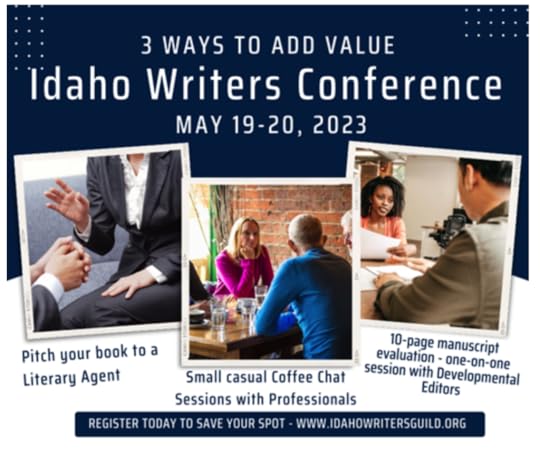
The post Rejection: What is REALLY in Control? appeared first on Kristen Lamb.
February 10, 2023
‘Twas the Night Before Valentine’s

Ah, Valentine’s Day. Fifteen years ago—before I met my incredible husband—was a really rough time for me in the ways of love. I was in my mid-thirties, always the bridesmaid and never the bride. At least three prior engagements hadn’t “worked out” and my family found it funny to call me “The Runaway Bride” because—to make a long story short—I was picky.
Anyway, my go-to way to handle stress/anxiety has always been humor. Thus, after the umpteenth time my family had something snarky to say about me being single “at my age” I riffed off this funny little poem.
Hey, I made myself laugh. That’s all that counted, right?
I’m certainly no poet, and this is all just for a chuckle. So for those still searching for love, who also find Valentine’s Day stressful, I hope this makes you smile.
***And yes, I updated it a smidge since dating sites change.
Twas the Night Before Valentine’s���by Kristen LambTwas the night before Valentines, and all through the land
The poor single people were wringing their hands
Handcuffs were hung by the nighties with care
Near the lotions and chocolates and lace underwear.
A day made by Hallmark to sell lots of stuff
Pushing candies and kittens and kisses and fluff
A day that makes ���single��� a social disease
Like bubonic or typhoid or chiggers or fleas
And that fat baby Cupid must be on the take
Paid in layers of cash stuffed in red velvet cake.
Love songs are played on every last station
As ���mush��� takes over our entire nation.
Now not that we���re jaded, us single-type folk
We���ve tried Tinder and Match, and Equally-Yoked
Suffered parks and clubs and churches and bars
And a handful resorted to wishing on stars.
Like most other people, we long for a mate
Who gets all our jokes and steals fries off our plate.
Maybe we���re picky, world-weary, or fussy
Since we won���t date just any Joe Schmo or hussy.
We want someone smart, attractive, and sweet.
Hey, just cuz we���re single doesn���t make us minced meat.
We do not begrudge the romance of others
The passion of courtship, the heat between lovers.
Before you judge our singular state
Think back to the days when YOU had to date.
Tomorrow we���ll stand in the grocery store line
Behind the new boyfriend with too little time
With his ���Get-Well��� bouquet cuz he waited too late
To score the red roses to give to his date.
Hallmark has trained us to scurry and dash
Into boutiques and florists with fistfuls of cash.
For stuffed little critters with a lap full of love
And boxes of chocolate morsels from Dove.
Yet, Singles won���t stand hours waiting to dine
On elf food with garnish and overpriced wine.
No chocolates with abnormal tropical middles
Or angst about thighs that may wiggle and jiggle.
No staying in bars desperately late
Trying to connect with a last-minute date.
So embrace your status and shout it out loud.
Yes, I am single! Single and Proud!
Valentine’s Stories?
Best Valentine’s Day experience? Worst?
My worst experience was back in the early 2000s. At the time, I traveled for sales and New Orleans was part of my territory. My then-fiance thought he’d surprise me and take me to Mardi Gras…except, being on the spectrum—which I didn’t know I was at the time—I could not take large crowds and that much sensory overload. Still can’t. It absolutely unstitches me.
I did TRY to join the celebration…and had a panic attack. With so many people and all the noise, lights and smells? NOPE. Though a very thoughtful Valentine’s plan on his part, I rushed back to my room and would only watch the parades from the window.
My BEST Valentines was when I met Hubby and my cat, Roobee—who hid from everyone but me—fell madly in love with my then-boyfriend. She kept bringing him hair bands all day! She’d pile them in the floor in different patterns then howl until he came and petted her and told her how amazing her “art” was.
Then, he’d leave and she’d rearrange them in a DIFFERENT pattern and yowl until he came running…which he did every time.
When he went into his room, she’d piled hairbands all over his pillow.
Roobee was with me 21 years and with us for 13 years of our marriage. Hubby took care of her in old age and he held her, weeping, when she passed. When he returned from the vet with her ashes and a paw print, all that remained in the bathtub where she’d last been sleeping was a towel…and one single hair band.
If THAT isn’t a great love story, what is?
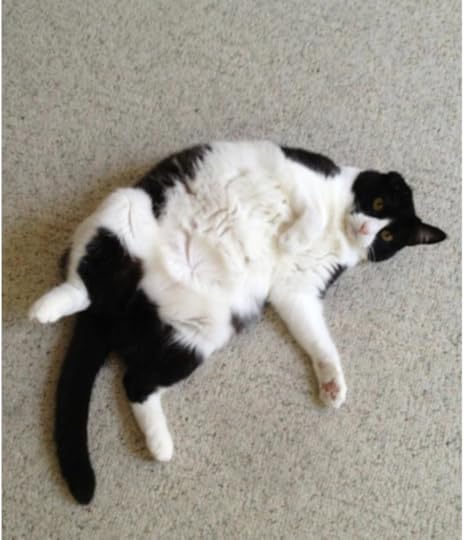 Our beloved Roo-bee…What Are Your Thoughts?
Our beloved Roo-bee…What Are Your Thoughts?Is this a holiday you enjoy? If so, why? I KNOW I have some romance authors here who are experts in this area. Do you have a favorite Valentine’s Day tradition? Or, are you like I used to be? You just lay low for that two weeks until everyone decides green beer is a great idea.
The post ‘Twas the Night Before Valentine’s appeared first on Kristen Lamb.
February 3, 2023
The Hero: Taking an MC from “Meh” to “Myth”

The HERO. We’ve all grown up with heroes real and imagined and, though all “grown up” we still can’t get enough of them. Heroes come in all forms, and we find them all along the continuum from the idealist goody-goody to the brooding/shady anti-hero.
Which begs the question. How do we transform our MC (main character) in ways that stand above all the other heroes out there vying for the spotlight?
Humans are a story people, meaning we all share one thing in common—we LOVE characters that embody all we wish to be. Yet, crafting a hero isn’t as simple as one might think. In fact, new writers generally serve up a “hero” too soon. They fail to understand that the title—HERO—is something that must be earned.
In fact, the harder it is for our main character to attain this noble title, the more valuable it is. The greater the opposition (externally and internally), the sweeter the prize.
To be blunt? Story participation trophies are about as exciting as real-world participation trophies.
A Hero is the FINAL Product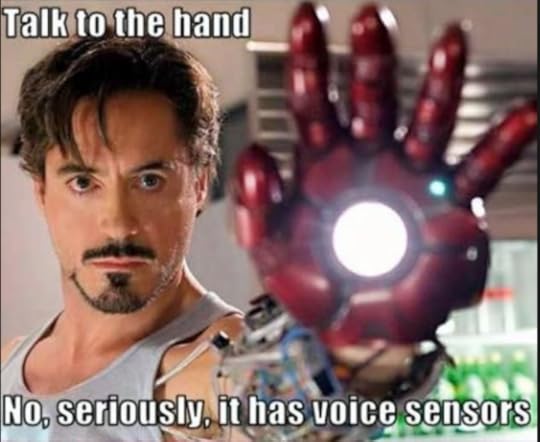
Before we get to any tips, let’s first make one thing clear. The hero is the final product forged in the fires of adversity. This might seem obvious to everyone who hasn’t tried to write a novel. When you’re new, though? You’re insecure.
Hey, I’ve been there.
I thought my main character had to be perfect for readers to like/want to root for her. Adding any flaws made me nervous.
I know! Give her ninja skills, too!
Frequently, new writers want their MC to be everything amazing. He/She has the looks and the moves. They’re larger than life and super *add in whatever superlative here*.
Yet, when it comes to great stories, this is a formula for a snooze fest. A hero, by definition, must overcome something to be worthy of the appellation. The story, then, is the account of the overcoming.
When we start the story, we begin with a rough protagonist, riddled with flaws who then crosses paths with the antagonist’s agenda. Once the protagonist makes a conscious decision to step out of his/her comfort zone and agree to the journey, the transformation process begins.
Rough Flawed MC—>Evolving Protagonist—>Hero
As we go through these tips, keep in mind that genre will heavily dictate each of these factors.
#1 Give Your MC (Hero) Weaknesses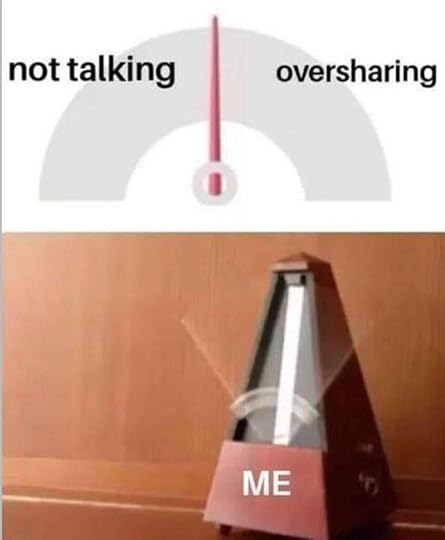
One of the reasons we want to give our MC some weaknesses is that no one is perfect. We (readers) can’t relate to perfect people. While it is scary to admit our protagonist is flawed, flaws are what will help readers connect and the story resonate.
Fear of failure, lack of confidence, lack of experience, gullibility, overconfidence, fear of abandonment, trust issues, insecurity, addiction, etc. are all very human weaknesses we can exploit for maximum tension.
Once we flesh out a protagonist and his or her weaknesses, we’ll have a better idea how this character will need to grow. The ideal story problem won’t have the MC operating in her strengths, rather it will have hit her right in her soft spots.
This will give only two options: change and grow stronger or collect allies to buttress areas of weakness.
Today, I’ll try to use two very different genres as well as examples I’ve not used before. No Lord of the Rings, today.
Stranger Things : Even Superheroes are Weak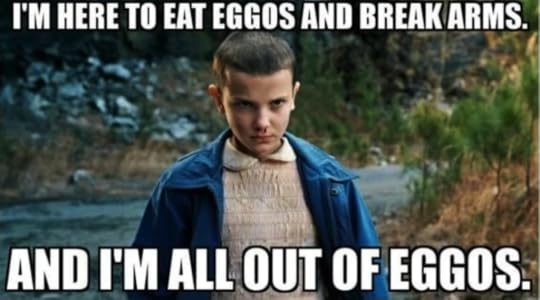
For instance, in the popular series Stranger Things, the MC, Eleven, escapes a secret government facility that’s been using her to spy on the Soviets as part of black bag operations. She has strengths (mental powers), but these powers are majorly hindered due to the fact that she’s never lived out in the real world.
Her naivete makes her extremely vulnerable to recapture. Until she can learn how to function outside of a lab, she’ll have to learn to trust her new allies (and trust is NOT her strong suit either).
Though Eleven has crazy mind powers, we can relate to her because her weaknesses make her more like us.
…unless you have mind powers. Then look me up because we totally should be friends.
Isn’t It Romantic? Everyone Wants Love
Since not everyone is a science fiction buff, I’ll use another example from a light comedy I absolutely LOVED. In the movie Isn’t It Romantic, Natalie, a woman disenchanted with love, suddenly finds herself trapped in a romantic comedy.
The main character (played by Rebel Wilson) is not the kind of gal normally cast as the heroine of romantic comedies…which is much of the point of the movie. She’s overweight, insecure, and lets her colleagues run roughshod over her.
Because of her low self-esteem, she fails to demand the credit she’s due as a talented NY architect and, instead, tolerates terrible treatment (like when a major client sends her out for coffee when she’s the project manager not the coffee gopher).
Though Natalie has clear surface weaknesses—her weight, lack of fashion sense—she has some internal weaknesses as well. She’s bitter, doesn’t believe in love, is very judgmental, and automatically seems to assume the worst.
Don’t know about y’all, but I can relate to a lot of this, especially the part about being a doormat. One phrase: GROUP PROJECT.
Enough said.
#2 Give Your MC (Hero) WoundsWe don’t have to live very long in this crazy messed-up world before we get sucker-punched. Ideally, our MC will have a “life” before the beginning of our story (backstory).
Genre will dictate what kind of wounds and the level of damage, but my point here is that pain is pivotal for any good story. Perfectly adjusted people make for lousy fiction (provided such people even exist).
All of us have been hurt and, when put under pressure, these are the weak seams most likely to burst.
Hero Wounds Don’t Have to Be Weird
Using my first example above, Stranger Things, Eleven has suffered serious trauma. She was torn away from her biological mother at an early age then imprisoned in a secret government facility. Her short life has been nothing but a series of terrifying and morally repugnant experiments.
The government has also harnessed her powers and forced her to do a lot of very bad things, leaving her with crushing guilt.
Remember, Eleven already had trust issues before she escaped. She won’t last in the outside world all on her own. But, her false guilt and abandonment issues only fuel her fear of trusting anyone.
Additionally, Eleven believes she’s poison because life has taught her that life is nasty, brutish and short for those who get too close to her.
The problem, however, is if she fails to trust, she has no hope of survival, let alone living long enough to be a hero. Though most of us, I assume, don’t have amazing psychic powers, we can at least understand what it’s like to be betrayed and how hard that can be to overcome.
We might also feel false shame or guilt over events that weren’t even our fault.
So, hopefully, y’all can see that even though Stranger Things involves some seriously extraordinary elements, the connective points that resonate with the audience (us) often are actually very common.
Hero Wounds We Can All Relate To
Going back to Isn’t It Romantic, there are so many scenes in this movie that resonated with me. Early in the movie, young Natalie is watching Pretty Woman. She’s obviously enraptured in the story when Mom bursts her bubble:
“They’ll never make a movie about girls like us, and you know why? Because it would be so sad that they’d have to sprinkle Prozac on the popcorn or people would kill themselves.“
Once we see this critical moment in Natalie’s past, it becomes pretty obvious why she’s grown into a jaded and lonely adult. She believes love (respect) is only for the perfect women in ads, magazines and in the movies. Her mom’s crappy comment left a deep wound that never healed.
Because of this wound, she acts out in ways that reaffirm this untruth. She pushes people away, doesn’t recognize those who really do care for her and value her, and she fails to see love that’s right in front of her face.
This is all because deep down, she doesn’t believe she is worthy of love.
#3 Give Your MC (Hero) a Blind Spot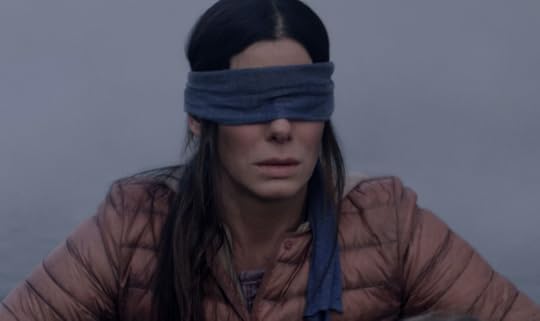
The blind spot is directly related to the MC’s weaknesses and wounds. We meet our MC in normal world, and, without any opposition, it’s tough to see weaknesses.
For instance, I have no idea if my arms are weak until I try to pick up that fifty pound bag of dog food and suddenly find that I can’t. So long as my husband always carries in the dog food, I might keep on believing my upper body strength is just fine. Only when my strength is tested will I be able to see I’m somehow lacking.
The same is true for wounds. Maybe I believe I am a super-confident person because I’m always in charge and get things DONE. But, when faced with a challenge too big for me to handle alone, circumstances will force me to face the fact I’m not confident at all, rather I’m an insecure control freak.
This is the point of the story problem. It reveals weaknesses and wounds that LOOOVE to hide in the blind spot.
Protagonists with no weaknesses and who are fully self-actualized are boring. It takes a hero to face the darkness, especially the darkness lurking inside.
Another tricky thing about blind spots is they tend to offer false confidence because they often masquerade as strengths.
Superhero Blind Spots
Eleven escapes the government facility and, over time, forges friendships and allies (though not easily). Why? Because if Day One she showed them her powers and detailed the government experiments, it would have been a pretty boring story.
Too much too soon.
Withholding information creates tension that keeps audiences riveted. What better way to do this than have an MC with serious trust issues?
Eleven’s justifiable paranoia keeps her withholding critical information. But, it isn’t just her trust issues that keep her from spilling the tea.
She actually cares about the first real friends she’s ever made and doesn’t want any harm to come to them. Yet, in her misguided desire to protect them, she ironically places them in much more danger.
In ways, she’s overconfident that her abilities can be enough to keep them safe. Even if that isn’t true, she underestimates their abilities in comparison to her own. Her underestimation of the collective power of her team is what steadily draws them all deeper into danger and steady raises the stakes from Eleven simply remaining free to her placing their entire plane of existence is in danger.
Until Eleven becomes aware of her blind spot, she has no chance of being a hero.
Holding Out for a Hero
I really loved the movie Isn’t It Romantic because it did a really great job of teasing the audience along what we believed would be a predictable rom-com ending. The only difference would be the overweight acerbic architect would find true love as opposed to the standard rom-com MC we all expect.
If you haven’t seen the movie, I highly recommend it. It’s just a fun, good time.
When Natalie (through an odd twist of events) finds herself thrust into a world where everything is a rom-com, it forces her to face who she is and why she believes what she believes.
As is true with the blind spot, Natalie soon starts noticing how she’s part of her own problem. Others walk all over her because she allows it, then goes off and complains instead of changing her behaviors. If she acted like a top end architect, the odds would improve that others would treat her as one.
She also realizes the biggest blind spot of all—WHY she’s so bitter when it comes to romantic movies (and how this is spilling into real life).
Natalie’s journey isn’t as much about a new wardrobe or makeover as it is about remembering the core pain and finally recognizing that it never healed. She never found love because she didn’t see it even when it was right next to her.
This is when Natalie becomes the hero in her own story. She can’t give to others what she doesn’t even have for herself…LOVE.
Build-A-Hero
After all of this, can you look at your main character and give them some relatable flaws? A protagonist with a secret, struggling with an addiction, has a hard time trusting, doesn’t believe they are good enough/strong enough/talented enough to get the job done?
Maybe someone so damaged they’ve gone off course believing they’re doing the right thing, only to learn how misguided they’ve become?
Think of your favorite stories and what flaws made the protagonists into the most interesting heroes (I.e. Forrest Gump, Bones, Deadpool).
What about wounds? Would Monk have ever been Monk if his wife hadn’t died the way she did? If he didn’t carry the false guilt that propelled an obsessive need for control? His wound created the flaws that makes him an unparalleled investigator.
Let’s look at a great blind spot. Think of what created the immortalized version of Sarah Connor. Terminator was a good movie, but Terminator 2 is MODERN MYTHOLOGY.
Why?
Because Sarah started out as an everyday waitress thrust into extraordinary events. In her single-minded mission to protect her son and the planet, she unwittingly transformed into the very thing she sought to destroy.
In the end, we all love to make our characters larger than life, cool and kick@$$ in every way. Don’t let me stop you. We still can!
Just keep in mind that layering a healthy dose of flaws, wounds and blindspots can elevate a story from meh to magical. Even all our favorite comic book heroes have issues, blindspots and drama.
What Are Your Thoughts? I LOVE Hearing From You!Who are some of your favorite heroes and why? I think a lot depends on my mood. Stranger Things is a really cool series because, while Eleven has the spotlight, every character is a hero in his/her own way and I could write a month of blogs easily on all the different characters.
They did an excellent job of layering in flaws, weaknesses, blindspots, and then using those to arc the characters into fantastic and fully formed heroes!
In fact, I think a lot of the best writing is coming out of series these days so it’s tougher to give good examples from the movies without reaching back in time to examples I’ve used plenty of times before.
But chime in! Have one place on the internet that is a little bit fun, right? What’s your favorite movie? Favorite hero/heroine and why?
The post The Hero: Taking an MC from “Meh” to “Myth” appeared first on Kristen Lamb.
January 18, 2023
What Do You Call a Writer Who Never Reads?
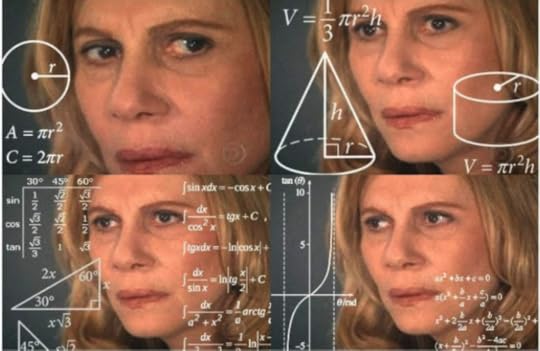
Oddly enough, there has been quite a debate over on Twitter about what we think about a writer who doesn’t read. In fact, going a bit further, the person who posted the Stephen King quote (below) mentioned she’d even seen blogs via new writers who openly claim they don’t read/don’t like reading.
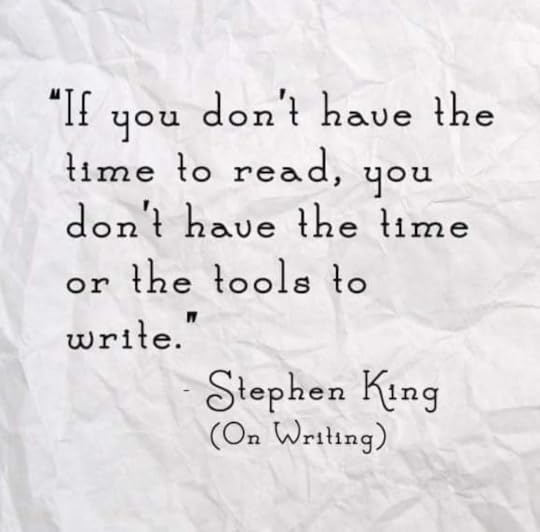
Before we get into this, though, please understand that I “get” everyone has different life constraints, budgets, and abilities. I know there are people with learning issues because I am one.
“Reading” does not have to be paper. It can be digital or audio or even visual. Long way around saying, if we want to be successful storytellers, then probably a good idea for us to be familiar with STORY.
When I used to run a writing group, we had a member who wanted to be a NYT best-selling author, but he never read.
Ever.
Claimed he was dyslexic. Okay. So I suggested audiobooks. Well, no, he was too ADHD to pay attention. All righty. Then I suggested watching films and studying them, but there weren’t any movies he liked.
Y’all seeing the problem here?
Thus, it was never any surprise that, in all the years he brought pages, they never improved.
EVER.
Reading and Writing
Whenever I am reading samples, I can ALWAYS…ALWAYS spot a person who never reads (and usually within a paragraph or two). There are a number of giveaways, but here is a quick list of red flags with N00B written ALL over them.
WAY too much stage direction.Huge POV issues, usually guilty of head-hoppingLoads of clichesShallow/repetitive vocabularyAll characters sound/”talk” the sameWeird tagsSerious pacing problemsNo dramatic tension/loaded with melodramaSuper-perfect charactersFlashbacksPassive voiceRely heavily on gimmicks (It was a DREAM!)Material rife with basic grammar and spelling mistakesCast too large/loaded with redundant charactersAuthor clearly DOES NOT understand genre/genre expectationsOverwritingMajor plot problemsMoving/alien body parts (His eyes FLEW across the room. NO! Gets carpet fibers on them!)No concept how to properly write dialogue (sounds childish and stilted or like cartoon villain monologuing).Too much telling and too little showingWriting is like no other profession. We are rooted in magic. Combinations of 26 letters to create entirely new worlds, people, religions, technology that has never existed before?
Puts the spell in spelling.
This said, writing a novel is a LOT like performing a magic show. Reading helps us learn to see where (other master performers) put all the wires and trapdoors that leave audiences stupefied. How do they use the lighting, misdirection, sound effects, or dry ice? We study all this so we can wow audiences when they attend OUR show.
It’s less about the props of the magic show and more about how we put them all together at the end.
Reading Tools
Admittedly, I was taken aback that some writers don’t read. Was even more astonished they were bragging about it. So throwing my two cents worth in.
I won’t take valuable time to list the obvious benefits of authors reading because that should be self-explanatory. What about the less noticeable benefits? And could those corollate with the “success” rates for “non-reading” writers?
This article spells out several ways our brains benefit from reading, and there are at least THREE of these I see as chronic problems for modern authors who don’t read.
Reading Heightens ConnectivityPart of being creative and possessing an amazing imagination is by making associations. Place two seemingly non-related objects or ideas together to come up with something even better.
When I get samples that blow me away? The writer is always, always a prolific reader. Conversely, if the story is flat, dull, and the premise done to death? Plot utterly predictable?
Guarantee the writer doesn’t read.
We need connectivity not only to come up with original story ideas, but to also piece the entire work together (and avoid being predictable). This connectivity is what will keep our story’s momentum when so many others stall out and die.
Even if we are born talented, writing is a skill that demands study if we want to be any good at it. Much like everything else.
Improves Attention SpansWhen we have to sit and READ we are also training ourselves to sit and WRITE. Writing is tough because it requires so much focus. If we allow ourselves to get into bad habits of goofing off on social media, channel surfing, etc. we’ll wreck our ability to pay attention.
The only way the book is going to get written is if we put a$$ in seat and DO IT. Then DO IT until it is FINISHED.
Increases Working MemoryFor those who have never FINISHED a book or a novel? It is a LOT to keep up with. I’ve never written a book that was under 83,000 words. Don’t you think I probably need to be able to remember what a character said or did earlier and where it is so I can keep the flow of the book going?
The better our working memory, the faster we’ll locate the necessary research, be able to glance at the plot and check all is okay, and the easier it will be to negotiate longer series. We’ll also be able to write a lot faster since we’ll have the information in our heads, and thus need to refer to notes less often.
Why is This a Discussion?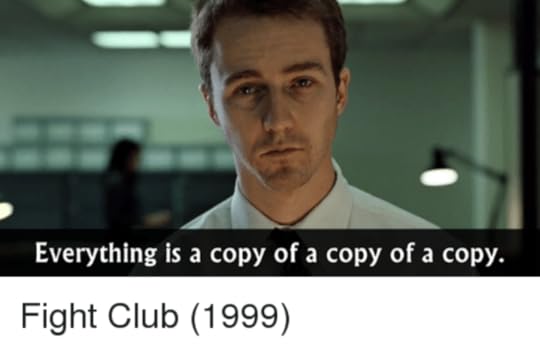
Ultimately, I am curious why this is even a discussion. To me, a writer who doesn’t read is so odd, it’s like thinking about what the number four tastes like.
That said, I’ve heard the “I don’t have time” argument a lot, and it is true. You probably don’t have time. Very few of us do. It is why we have to MAKE TIME.
If you’re like me, and it is a struggle to sit and READ a book, try retraining your ear and listen to audio books. Yes, I have to back the books up and listen multiple times, but perfect is the enemy of the good. When I find a book that is truly remarkable, I buy in paper…then scribble notes all over it.
Not only do I run a business from home, but I homeschool my seventh grade son. It was getting harder and harder to sit down with a book. I finally hit a point where I figured my writing would improve infinitely more if I “imperfectly” read 100 additional books a year than it would if I read nothing.
Ergo audiobooks.
The Entitled Elephant in the Room
I feel it should be fairly obvious why it’s a pretty good idea for writers to read. To reiterate, I understand time constraints, money issues and learning disabilities. This post isn’t about people who have challenges, who have to figure a way to work around obstacles. This is for writers who openly admit/are almost proud they don’t read.
Which ticks me off to no end.
Bear with me.
If we want people (a.k.a. “readers”) to spend their limited spare cash and seriously limited spare time to read OUR books, shouldn’t we extend the same courtesy to our peers?
How easy is it going to be to sell someone on reading our books if WE go around chirping about not reading/not liking to read? Something like 94% of the literate population are not avid readers. What goes through their heads when an AUTHOR claims they don’t like to read?
I read not only to improve my skills, but to support those other authors in the trenches with me. Reading supports my fellow writers by buying, reading and (if I can) reviewing their books. I also support the INDUSTRY I am in, because if no one supports the industry, none of us will have a job.
What are your thoughts?Does it seem utterly bizarre that a writer wouldn’t also love to read (or at least love stories)? I read every day as part of habit. Instead of listening to music when I do the dishes, I listen to a novel.
For me, reading is much easier with Audible (and no I don’t work for them but maybe I should).
What about you guys? Do you not feel a need to read and I am somehow way off base? Can you tell if a writer isn’t also a reader? Does it seem weird an author wouldn’t also love that which they create?
Do you feel our profession is too often taken as a scratch-off lottery way to get instant fame and riches? What do you feel about books and the profession of writing?
The post What Do You Call a Writer Who Never Reads? appeared first on Kristen Lamb.
January 13, 2023
To the Pain: Is Writing a Career or a Hobby?

Pain is simply part of life. I think THAT much is clear as we are almost two weeks into 2023 *thinks of carbs and cries* Truth is, we have little control over most of what happens to us. This is true in life and in publishing. Control, in many respects, is an illusion. We can only do our little part on most things then hope and pray for the best.
This might sound a lot like me being a Debbie Downer here, but the truth can actually be quite liberating. When we recognize there is only SO much we can control, it narrows down our focus and all the things we “care” about.
We can set expectations accordingly and realize what is within our purview (finished books sell WAY better than unfinished ones) and frankly, what’s totally out of our hands (novels featuring left-handed snake handlers are all the rage!).
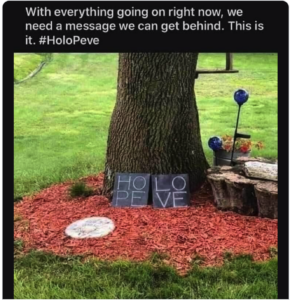 Dealing with Change
Dealing with ChangePublishing, like every other industry on the planet, has experienced a drastic transition over the past 12 years or so. An industry that had remained relatively untouched for over a century crumbled. Whether we like it or not, Amazon and on-line shopping dismantled an institution.
And yes, I hear all the writers collectively groan and wail. I don’t like it either. Shopping on-line just isn’t the same as browsing a bookstore all day, feeling paper in your hands and having a physical thing, right away you can touch and read and (if you are me) scribble in.
If you do want to set out to write professionally, then it is wise to understand exactly what you’re getting into. The actual path to publishing, not the “Made for TV” version we can be way too fond of (especially when new).
Writers are entrepreneurs and entrepreneurs are wise to do what is called a S.W.O.T. Analysis (Strengths, Weaknesses, Opportunities, Threats).
So the “bad” news first.
Pain and Publishing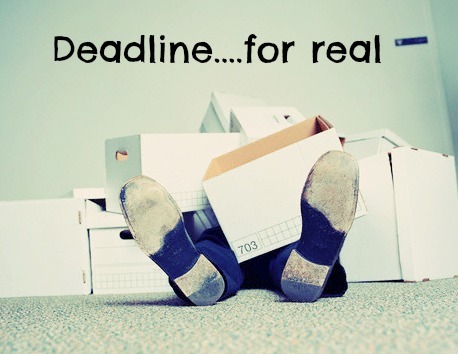
The consignment model that bookstores have relied upon for well over a century is, for all intents and purposes, gone. For anyone curious how this model worked (and is now likely limping along) the The Hard Truth About Publishing���What Writers & Readers NEED to Know provides a detailed breakdown.
Regardless, publishing will continue to go more and more on-line for a number of reasons. The consignment model, as I’ve pointed out, is and always has been grossly inefficient. This was all well and good so long as bookstores and physical books had no competition, no cheaper alternative. But that is no longer the case.
Additionally, want to know something about paper? It is freaking HEAVY, which means, with the cost of diesel right now, the profit from any paper book is tied to the cost of crude.
If it costs a small fortune to ship books, that eats away at any profit. Eventually, there is a ceiling that even bibliophiles will reach. We’ll only pay SO MUCH for the paper books we love, especially when digital is a fraction of the cost.
All this to say that Ye Olden Days of Publishing are gone, and have been for a while. Which is fine, but also scary. In the August 2, 2022 article in The New York Times, The Books Merger That’s About Amazon:
The elephant in the room is Amazon. Book publishers want to become bigger and stronger partly to have more leverage over Amazon, by far the largest seller of books in the United States. One version of Penguin Random House���s strategy boils down to this: Our book publishing monopoly is the best defense against Amazon���s book selling monopoly.
Shira Ovid, The New York Times
Whether for good or for ill, a judge blocked NY publishing’s plans to merge two publishing titans—Penguin Random House and Simon & Schuster—in hopes of faring better against their ongoing nemesis, Amazon.
Initially, the duo claimed they’d fight this decision, but have since withdrawn any future plans to merge.
It’s Just Business
In the face of a recession that’s steadily nibbling away at profits as well as supply chain issues, the future of publishing is, as always, uncertain. This has always been the case in traditional publishing (especially when an excruciatingly small minority of authors are responsible for most of the profit).
This said, publishing is a business. Writing, if we want to go pro, is a business. We are wise to understand that business and how it works (or doesn’t). I totally get you and wish I had different news. What I would GIVE if all I had to do was WRITE. But, when we go pro, there’s a lot more that goes into being an author than simply getting words on the page.
And enough about that.
My goal here isn’t to utterly deflate anyone’s dreams of becoming a successful author, but this is a voyage. Like any voyage, it’s simply prudent to be honest about the trip ahead and plan accordingly the best one can.
It’s Looking Up…Maybe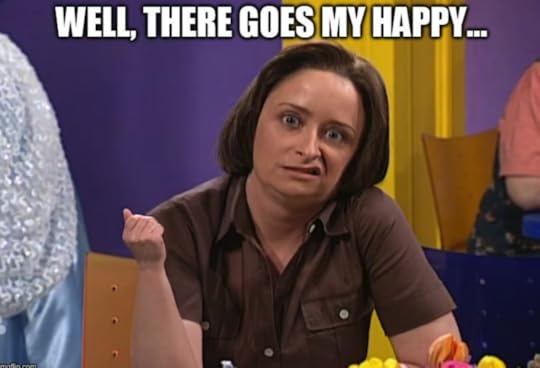
One good “trend” I am seeing is the resurgence of older titles. In a November 1, 2022 article in The New York Times, A Big Publishing Merger Was Blocked, but Brought the Industry Little Clarity:
Simon & Schuster, however, has been having a very strong year, outperforming many of its rivals. Its revenue grew by 34 percent in the second quarter of the year, driven in large part by older books that have taken off on TikTok, including ���It Ends With Us,��� by Colleen Hoover. ���The Last Thing He Told Me,��� a novel by Laura Dave, spent a year on the best-seller list and has now sold two million copies, Simon & Schuster said. Ada Ferrer���s ���Cuba: An American History��� won a Pulitzer Prize.
Elizabeth A. Harris & Alexandra Alter The new York Times
What do I see in this? Readers are tired of the slush pile being dumped in their laps. I’ve always held issue with how the big publishers and major retailers like B&N conducted business, namely because they kept trying to out-Amazon Amazon instead of playing to THEIR strengths.
Big publishing’s largest strength has ALWAYS been the relative quality of their books (overall). Even the worst traditionally published book generally has a cohesive plot and isn’t riddled with typos. When readers are thrust into a market saturated with unreadable, unedited or poorly edited stories, traditional publishers have always had the advantage.
Ironically, the entity they fought tooth and nail (social media) is the main component that now seems to be saving them.
What Does This Mean?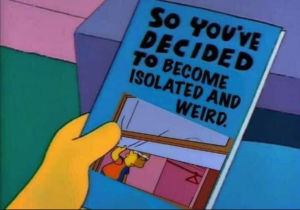
It means, firstly, that there are two fundamental aspects to being successful as an author—> Good books and solid platform.
I think we are, blessedly, moving beyond the early fascination with the shiny widgets and we (readers) want quality reads. We also don’t have a lot of time, and resent wading through bad books, regardless how they’re published.
People will always want good stories (Fiction) and information (NF).
The fact that older, pre-digital age books are coming back big, is a sign to me that we have more readers than ever, and they’re enthusiastic about excellent stories. Not only enthusiastic, but also addicted to social media, so they will InstaTwitFace all day about what they love!
We’re also seeing an explosion of different KINDS of stories, thus creating opportunities for different kinds of WRITERS. Short works are making a BIG comeback. The digital age has resurrected many forms of writing that were almost lost to us (E.g. poetry, essays, novellas, short stories, serials, etc.)
I’ve published traditionally, indie, and self-pub. Since I’m a control freak who enjoys breaking rules, I prefer self-pub and agree with Stephen Haunts that we indies really are The Punk Rock of Publishing.
So more good news. We are no longer in a One-Size-Fits-All profession. Yes, we’ll have to choose our pain, but at least now we have more options for our publishing suffering.

For those of us who want go pro, it is time to get to WORK. I love NaNoWriMo as much as anyone. I’ve been doing it for years and most of the projects I’ve completed are now published works.
Yet, when we make the shift from hobbyist to professional, every month is NaNoWriMo.
We have to understand that, while there is nothing wrong with writing for fun, hobbyists play for fun. Pros play for keeps. Make a habit of writing every day. I don’t care if it is 500 words (2 pages). Two pages every day of every week soon becomes a book.
As Mark Manson reiterates in his best-selling book The Subtle Art of Not Giving a F**k, it is easy to fall in love with the end result. To imagine our books on every end cap, in People Magazine, trending on TikTok, or being made into a Netflix Original. And those are the dreams that will keep us going through the giant span of SUCK before the breakthrough.
Yet, in the meantime…
What KIND of Pain Will You Enjoy?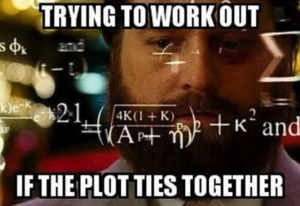
What kind of PAIN will we enjoy most? Because we cannot truly control anything in the industry beyond a certain point. To go pro, we must be honest about the pain writing entails then ask if it is worth it.
Would you STILL write even if I told you you’d never make a dime and likely die in obscurity? If the answer is yes, then we’re off to the races. If we write because we love it and wish to master it, then that is all that truly matters.
That passion will make us show up day after day and turn out word count. We’ll become experts at FINISHING. No half-perfect novel ever became a runaway success, but a lot of completed “crappy” books have.
We will have to keep an eye on the industry, understand how it works. If one publishes traditionally, then there is the pain of whatever limitations/expectations a publisher might place on us.
If we publish non-traditionally, then we not only need a good book, but we have to oversee the blurbs, back copy, formatting for paper and e-book, cover design, ISBNs, marketing, platform, brand, etc.
Which, for the record, ALL authors are responsible for marketing, platform and brand so there’s no Publishing Sugar Daddy that is going to shield us from that.
Peace with Pain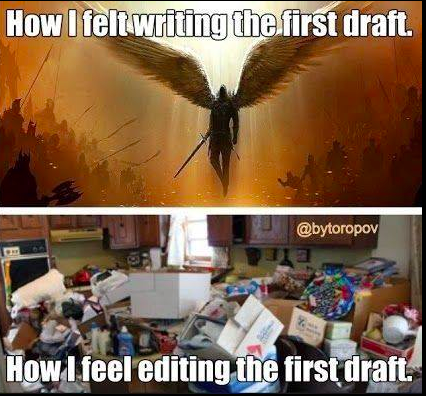
When we are okay with the pain of working alone, dealing with setbacks, learning to stick and move with an industry that changes at the speed of algorithms, and we’re willing to do the hard stuff because we love to write THAT MUCH?
Going pro is probably a good decision.
The better news is we’ll have lasting power our peers don’t possess. Believe it or not, most of being successful in anything is the discipline to consistently show up.
Every legendary book was written one word at a time.
Writing as a hobby is ALWAYS a good decision for those who have a passion for story. We don’t HAVE to monetize everything that brings us joy! It is OKAY to simply have fun.
Remember this when looking back at those New Year’s Resolutions still freshly inked on the page. If we fall in love with process, we can accomplish almost anything.
What are Your Thoughts About Pain?Other than you don’t like it? Same. What I would GIVE for a pain-free option, but sadly life doesn’t work that way. Do you love the process or just love to fantasize about the end victories?
Hey, I was TOTALLY guilty when I was new. I spent more time imagining my books a movies than actually writing. Now? I am guilty of the opposite and need to do more dreaming.
It is 2023, so what have you decided? Go pro? REALLY? Or just learn to enjoy dabbling? Maybe a mixture of both? Do you need to be stricter with yourself, or maybe learn to lighten up a little?
I LOVE hearing from you!
The post To the Pain: Is Writing a Career or a Hobby? appeared first on Kristen Lamb.
November 29, 2022
Self-Sabotage: I Don’t Deserve Success

Self-sabotage is something most writers are likely familiar with. We just about get in the habit of working on the WIP (work in progress), and then suddenly we put everyone and everything ahead of finishing that book. Usually they’re noble causes, too. Cleaning the house, organizing the closets, alphabetizing the pets….
I work hard to make “success” books part of my morning routine when I’m doing my chores: making the coffee, making the bed, putting on any laundry, etc. One of my favorite audio books is “Atomic Habits” by James Clear. Namely because the advice is practical, doable, and aligns with my personal value system.
No shade on the “believe it enough and it will happen folks,” but there is also a degree of WORK involved in reaching any goal.
This is why we must learn to ignore the outside voices and take the helm of our own destinies.
Results Reinforce Habits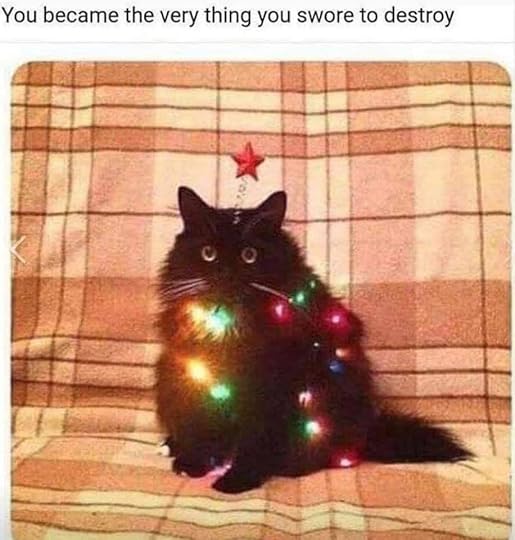
Why did I bring up “Atomic Habits?” Other than it’s a good book? There was something I read this morning that I feel needs expounding. Clear notes, correctly, that when we see evidence of our habits, that reinforces our identity.
When I declutter daily, I see my surroundings are neat and tidy. Therefore, eventually I identify as an organized person.
But what about being a writer?
Becoming a writer will likely be one of the hardest things any of us does, and for a number of reasons. Unlike eating healthy, working out, saving money, or systematically decluttering our living spaces, much of what we writers do is in the dark. There are many times we will have to press on using sheer force of will and blind faith.
We’ll have to write simply for the love of writing.
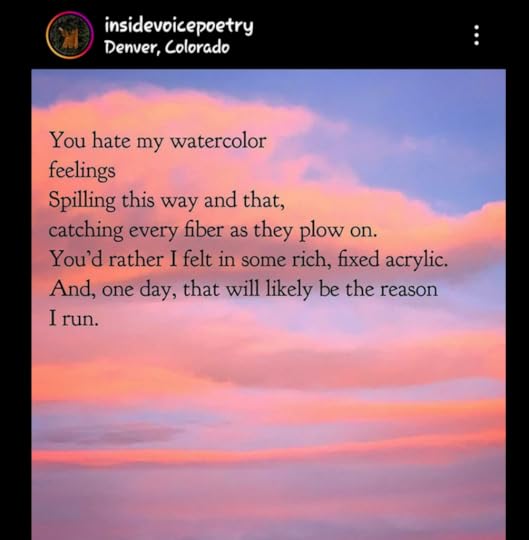
We can write millions of words, dozens of books, even publish books and I GUARANTEE you at least ONE @$$hat out there will intimate what we do is not “real.”
Whether they do this out of jealousy, misguided good intentions, or simply not thinking before they speak? Who knows? Yet, I can tell you that, after 16 years of working with all levels of writers, many of them household names? The insecurity never goes away. If anything, it gets worse.
Anything Here Familiar?
I just published a book!
Them: Yes, but you self-published.
My debut novel received almost a hundred rave reviews.
Them: Yes, Amazon really is trying to crack down on fake reviews. Are you sure they’re all real?
My book hit #1 as a best-seller.
Them: Amazon best-sellers aren’t REAL best-sellers.
My book made the NYT Best-Seller list.
Them: Everyone knows the NYT list doesn’t account for actual sales and the numbers are manipulated.
I just published my tenth novel!
Them: How nice. Amazing that Philip K. Dick wrote 44 novels and over 120 short stories. And Stephen King has written 9000 novels and 43,000 short stories.
Okay, I was being a bit silly there because I was starting to depress myself.
The point is we cannot rely on external validation. That is a formula to end up curled in the fetal position washing down raw cookie dough with tequila.
I also mention this because, we’ll self-sabotage wasting time pondering if we are “real writers” instead of WRITING!
What can happen is we’ll keep moving the goal post of what makes us a “real writer.” Eventually, we’ll give up because we set that standard SO high we crumble under the pressure.
Here are a few fun blogs to remind y’all that writers write. Plain and simple.
Diagnosing a REAL Writer: Do You Have Terminological Inexactitude Syndrome?
This is Gonna Leave a Mark: What Makes a ���Real��� Writer
Real Writers Don’t Self-Publish (Part One and SATIRE)
Real Writers Don’t Self-Publish (Part Two and ALSO SATIRE)
The Personal Apocalypse���When are We REAL Writers?
Self-Sabotage & Fear of Failure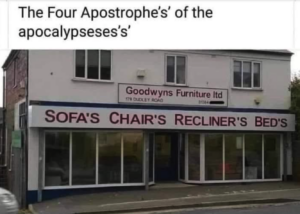
I’ve been on social media since before it went mainstream in 2006, which means I’ve experienced and witnessed enough Imposter Syndrome to last many lifetimes. One of the main reasons we are SO hesitant to call ourselves a writer is precisely because of the head games mentioned above.
Critics will always find some reason to diminish what you’ve accomplished.
Most people fear failure, which is dumb because failing is the only way humans learn. How many of us would berate a toddler every time they fell learning how to walk? We learn by DOING, and we improve by FAILING.
Yet, our culture has ingrained fear of failure into our DNA. My parents never cared about the 90 questions I answered correctly, only the 10 I missed. Schools punish failure, jobs punish failure, culture punishes failure.
Want to know the one phrase that vexes me to no end? “One-hit wonder.”
Despite the FACT that many “one-hit wonder” songs have defined pop culture and even entire generations, our culture still saddles them with that term.
They were KUNG-FU fighting!
867-5309
Oh Mickey you’re so fine, you’re so fine you blow my mind.
Pass the Dutchie on the left-hand side.
Taaake ooooon meeee! Taaaaake meeeee ONNNNNNN!
Stop! Collaborate and listen!
Woot, there it is! Woot, there it is!
The dreams in which I’m dying are the best I’ve ever had. It’s a mad world.
What does the fox say?
Now that y’all have at least ONE of those stuck in your head, I hope I made my point. Go check out the list of one-hit wonders who, by definition, are “failures.” This is to point out the lunacy of our culture. So don’t look to it to feed your ego.
Self-Sabotage & Fear of Success At least it is FINISHED.
At least it is FINISHED.Many writers who do successfully hit a “real” best-seller list (whatever “real” might be defined as) then struggle with if they can do it again. Or will they be the dreaded…one-hit wonder?
Because if one book sold hundreds of millions of copies and redefined culture as we know it…but the author doesn’t KEEP doing that…then they failed.
Makes TOTAL sense.
Yet, we can fall into habits of self-sabotage not only because we fear we’ll fail (never finish the book, never land an agent/book deal, be published, make a list, etc.) but precisely because we are afraid we WILL accomplish these things.
What if I only have one good book in me?
I made Whatever Prestigious List, but was it a fluke? Can I do it again? What if I can’t?
This might all sound rather silly, but emotions aren’t always logical. Remember, perfect is the enemy of the great. It is also the enemy of the FINISHED. No half-finished “perfect” book ever became a runaway success, but some very much less-than-perfect ones have.
We’ve covered fear of failure and fear of success, but the one I really want to explore today is the notion of whether or not we deserve success.
I Don’t Deserve It
When we’re stuck in a culture that doesn’t value what we do, it’s easy to believe (at least subconsciously) that writing is some extra indulgence. A hobby, a guilty pleasure, something to be done after doing REAL work.
Many of us are partners or parents or are taking care of loved ones. We believe that when the laundry is done, the dishes washed, the beds made, the bills paid, the pets brushed, the curtains are washed, the ceiling is repainted…THEN we can write. As if writing is not a profession, but a treat to be doled out for good behavior.
THIS is a mindset we must change if we want to go pro. For the record, I STILL struggle with this. I have to MAKE myself get up and write first thing. All the while the siren’s song of dishes, litter boxes, email, and bills are calling me.
I’d love to say I’m always successful, but I try to keep my lying to fiction. There are many reasons this profession is TOUGH and not for everyone.
Fight for Your Right to WriteYes, it can be a battle with others, but mostly with ourselves. Many of us have a lot of bad programming we need to overcome.
I grew up in a dysfunctional family (a.k.a. typical 80s family). Whenever I wanted something, my parents had a list of common responses:
Do you have a job?
Are you the one paying the bills?
Money doesn’t grown on trees.
Me DESIRING something was intrinsically tethered to my monetary contribution to the home (or said equivalent). Since I didn’t bring home a salary, ergo I had no right to want and did not deserve anything. I only deserved when I a) made good grades b) cleaned my room c) did my chores.
Seeing a pattern here? How many writers don’t write because their writing doesn’t make money, but their writing isn’t making money because they aren’t writing? We unwittingly self-sabotage and that self-sabotage just exacerbates the feedback loop from hell.
Been there, have the box of t-shirts.
No More Self-Sabotage: You Deserve It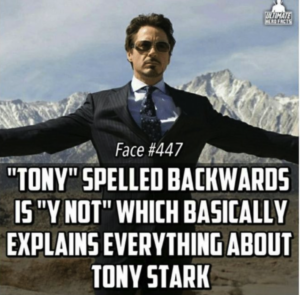
We all deserve our dreams. If your dream is to be a writer, then YES, that will demand a lot of work. As in writing, rewriting, reading, studying, learning, researching, building a brand/platform, cultivating an audience, showing up day after day and putting down words no matter what.
What being a writer does NOT entail is you being a good little you and doing all your chores and “real” work before you’re allowed to go write.
If no one has yet given you permission to go write, I will.
WRITERS WRITE. Enough said.
Ultimately, we are in charge. There will always be people who will criticize, tell us why we are poseurs, fakes, fools, hacks, etc. Until we realize that all of that just goes with the territory and get to work ANYWAY, we’ll find every reason not to sit butt in chair and write.
We will revise the opening of that novel 9,763 times. Start new books while abandoning half-finished ones. We’ll believe we can’t succeed because (INSERT REASON HERE) and we’ll talk ourselves out of even trying. Ultimately, we won’t even need the outside world to work against us, because we’ll figure out a way to self-sabotage before they get the chance.
BUT, that is what happens when we are operating in auto-pilot. Now that, hopefully, we are more aware of counterproductive behaviors/ideas/attitudes, we can take action.
Think about all those one-hit wonders.
They did the work, learned to sing, play an instrument, or at least be brave enough to put themselves OUT THERE. And maybe they never made it into the Rock & Roll Hall of Fame, but you know what?
Don’t worry. Be happy  .
.
Are you guilty of shooting yourself in the metaphorical foot? Do you put everyone’s needs ahead of your own? Does writing feel like some guilty indulgence instead of the meaningful profession it is? Have you struggled with the notion of what makes a “real” writer?
What have you done to overcome these issues? Do you have any suggestions or tips? Hey, I am a work in progress ALWAYS and love the feedback!
The post Self-Sabotage: I Don’t Deserve Success appeared first on Kristen Lamb.
November 22, 2022
Unseen Blessings: Are We Truly Thankful?
 Pippa claims she is “helping” with laundry *head desk*
Pippa claims she is “helping” with laundry *head desk*At least in the U.S., this is a week where we celebrate all we are thankful for (or at least it is supposed to be). In our modern world, I believe it is easy to take WAY too much for granted. Hey, I’m completely guilty of forgetting all my blessings and letting the silliest stuff steal my joy.
Since all y’all (correct Texas grammar) are perfect, I’ll just list some ways I can consistently fall short.
The microwave took a WHOLE two minutes to make the popcorn and it didn’t even pop ALL the kernels.
I needed to remember the other ingredients to the recipe, but the wifi in my grocery store is terrible. Is it too much to ask that a message from SPACE be delivered instantly?
The store was out of whole bean coffee and only had the ground stuff.
The dryer took too long to dry my clothes so I had to wear something else.
My iPhone 13 had to update AGAIN, and like totally in the middle of me listening to a podcast.
Okay, I’ll stop. I’m starting to want to punch myself in the face,  .
.
FUN FACT:
Gratitude does not come naturally. Humans are biologically WIRED to seek out problems because we lived tens of thousands of years without a Walmart, IKEA, or Amazon. Being able to spot every problem possible (real, potential, or imagined) literally meant the difference between life and death.

Now that the whole “being devoured by wolves” thing is, by and large, handled, our brains still haven’t gotten the memo.
But seriously, how many times do we find ourselves complaining or even frustrated over the silliest things?
I cannot be the only person who gripes about forgetting to buy enough salsa. Maybe I am. Judge all you like.
Thankful People are Happy PeopleWhen I first decided to become a writer, I wanted to set my story at the Grand Prix in Monte Carlo. What did I do? I drove to the Ferrari dealership and took hostages made friends who could teach me about the world of racing.
Which was a really cool experience. I was able to meet professional race car drivers and ask questions. The one bit of advice that stood out to me had to do with how to win. Obviously, one has to FINISH the race to win. Kind of a prerequisite. Yet, what is an ever-present danger? Hitting the wall.
To combat this, drivers train to always keep their eyes where they want to go. Look at the wall and you hit the wall. Race car drivers learn that if you want to cross the finish line, always keep your eyes on the finish line.
Where the eye goes the mind (and car) follows.
This is VERY true in life.We live in a consumer culture that is designed to sell us stuff. How do they do this? They tell us we don’t have enough. We’d be happy if we had a bigger house, a better car, a thinner body. Whether it’s Netflix or Instagram or Aunt Sheila, we’re continually fed a nonstop diet of the million ways we are not enough, how we could be better, and how much happier we’d be if only ______.
In short, modern Western culture is designed to keep our eyes on the wall. And then we’re mystified why we keep falling to pieces. This is why focusing on what we have that we are THANKFUL for can be so critical for mental, emotional, and relational health.
If all we see is where our partner or kid or family member messes up? Soon, that’s ALL we’ll see. When we fail to ever recognize all the things we do right, that we accomplish, where we shine, and only fixate on how we fall short? It won’t take long before we’re an emotional wreck.
Life Can Be Hard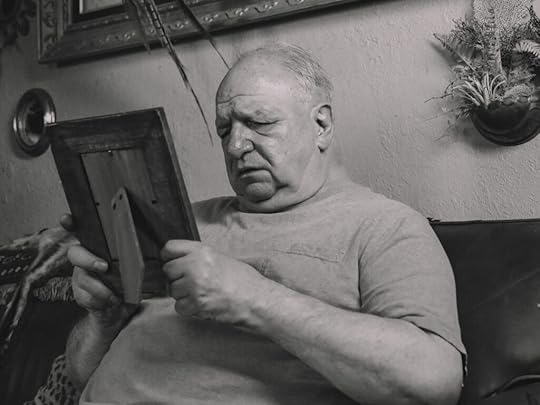
Before we talk more about gratitude…
Not too long ago, I wrote a post about toxic optimism called Optimism Overdose: Sometimes Life STINKS. At the time, my FIL was in hospice. Not long after that post, he passed away. Life can be uncertain. There is genuine pain, suffering, and grief and it is equally important we recognize these emotions and feel them as well.
When we fail to authentically experience the negative emotions, they can manifest as depression, neuroses, physical pain, or chronic illness.
That said, I recall a (now) funny story about when I first decided to become a writer. I’d love to tell y’all it was an amazing time, but far from it. In 2001, I was misdiagnosed with epilepsy and had to resign from a very good-paying job. My health was shattered, and my ego was in whatever is worse than the toilet and lower than the gutter. I lost my apartment, most of my belongings, was unable to drive…and had to move in with my mom.
And So It Goes…One day, I was lying in bed and my mom asked if I was depressed. In a rare moment of clarity/honesty, I said, “No. I am angry, disappointed, jaded, bitter, and generally pissed off that I’ve failed so badly at life.”
The funny thing about that? Once I OWNED those feelings, I actually felt a lot better. I’d identified what was genuinely wrong and could then work forward from there.
Now, please, do not take this as a sweeping generalization for all forms of depression. This was merely MY experience.
But even the great Carl Jung said:
Until you make the unconscious conscious, it will direct your life and you will call it fate.
Carl Jung
I understand there are times it is genuinely hard to be thankful.
I’ve lived many holiday seasons where I didn’t know if we’d have food, or was struggling to pay the bills, get a job/keep a job, grieving the loss of yet another loved one, trapped in the Jerry Springer family get-together from HELL. In fact, for me, the holidays have a lot more bad memories than good (though been working on that).
So I GET it.
Yet, I think when life feels as if it is caving in, that we just can’t take one more step without shattering, that is the time we need gratitude the most.
Thankful for Thanksgiving
Thanksgiving seems to be the middle child of holidays. Halloween is fun and glitzy and exciting. Christmas is shiny, has merch and movies and parties and gifts���and oh yeah, there���s Thanksgiving.
Hey, do we even have decorations for that?
Christmas is this magical time, and we often hear how we need to keep Christmas in our hearts all year long. Well, that is a great idea, but we would be wise to keep Thanksgiving there, too.
We have all kinds of ways to be thankful and many things to be grateful for that we might not even notice. The next time you go to complain, I challenge you to think of the blessing that inconvenience really is. I do this myself when I hear complaints and grumblings coming out of my mouth. YES, it is corny, but just roll with it.
I���ll show you what I mean���
Flipping the Script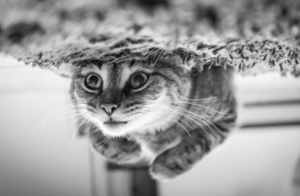
I am thankful for all the laundry I have to do, because it means I have clothes to wear.
I am thankful for the pile of dirty dishes, because it means I didn���t go hungry.
I am thankful for the big electric bill, because it means my home has lights and heat.
I am thankful for the car that needs all new tires because it means I don���t have to walk miles and miles to get what I need.
I am thankful for that parking space waaaaayyyy out in the back, because it means I don���t have to park in a handicapped space. I’m able to walk.
I am thankful for the closets that need to be cleaned out, because it means I am blessed with plenty.
I am thankful I can’t have a Christmas tree because it means I have cats who break things, get fur all over my favorite outfits, puke in the middle of the night and ONLY on carpet. And seriously? This is why we can’t have nice things!
Wait, I WAS going somewhere with this.
Oh yes. They are cute and love us a lot…and are cute. And I also don’t need to take down a tree and put away a bunch of ornaments.
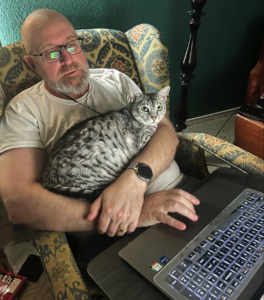 Odin the Emotional Support Cat/Attention Whore
Odin the Emotional Support Cat/Attention WhoreI am thankful for the split ends I have, because it means I haven’t lost all my hair to chemo.
I am thankful for the Christmas cards I need to send, because they could as easily be funeral announcements.
I am thankful for the traffic snarls that catch me, because the body the firemen pulled out of the fatality accident could have been me or someone I love.
I am thankful for my wrinkles and gray hair. Old age is a blessing denied to many.
I am thankful for my giant food bill, because it means I have a healthy son (who doesn’t have a stomach, he has a SINGULARITY).
Being Thankful is a Habit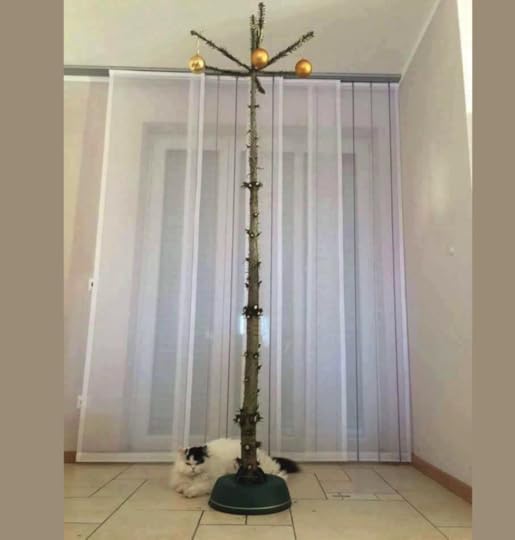 The Christmas tree we need….
The Christmas tree we need….As I mentioned earlier, we aren’t wired to be grateful. Having an attitude of gratitude is very counterintuitive to our human nature.
Love, joy, peace, patience, kindness, goodness, faithfulness, gentleness, self-control and thankfulness are NOT natural. These are all qualities we have to be mindful to practice enough to make them habitual. And it is REALLY easy to backslide.
I am definitely thankful for all of you who bless me on this blog because it means y’all are willing to bless me with the most precious resource you have. TIME.
I’m immensely grateful you guys give to freely to me. You guys are the bright spot to each and every day in my world and the world around you. It is such an honor and privilege to serve you.
I love hearing from you!What are you guys thankful for? I���d like to hear your comments (which I am super especially thankful to get, by the way). Do you have any struggles or stories you’d like to share? I can’t be the only one messed up  .
.
And to show my love, for the month of NOVEMBER, everyone who leaves a comment I will put your name in a hat. If you comment and link back to my blog on your blog, you get your name in the hat twice. What do you win? The unvarnished truth from yours truly.
I will pick a winner once a month and it will be a critique of the first 20 pages of your novel, or your query letter, or your synopsis (5 pages or less).
Now I gotta go brine a turkey, and am THANKFUL I have to cook because it means I have food and family and friends. Have a fabulous holiday!
The post Unseen Blessings: Are We Truly Thankful? appeared first on Kristen Lamb.



